Arts & Entertainment
Best of LGBTQ+ LA 2022
Our fifth annual special issue celebrates your favorites in nightlife, dining, activism, and more
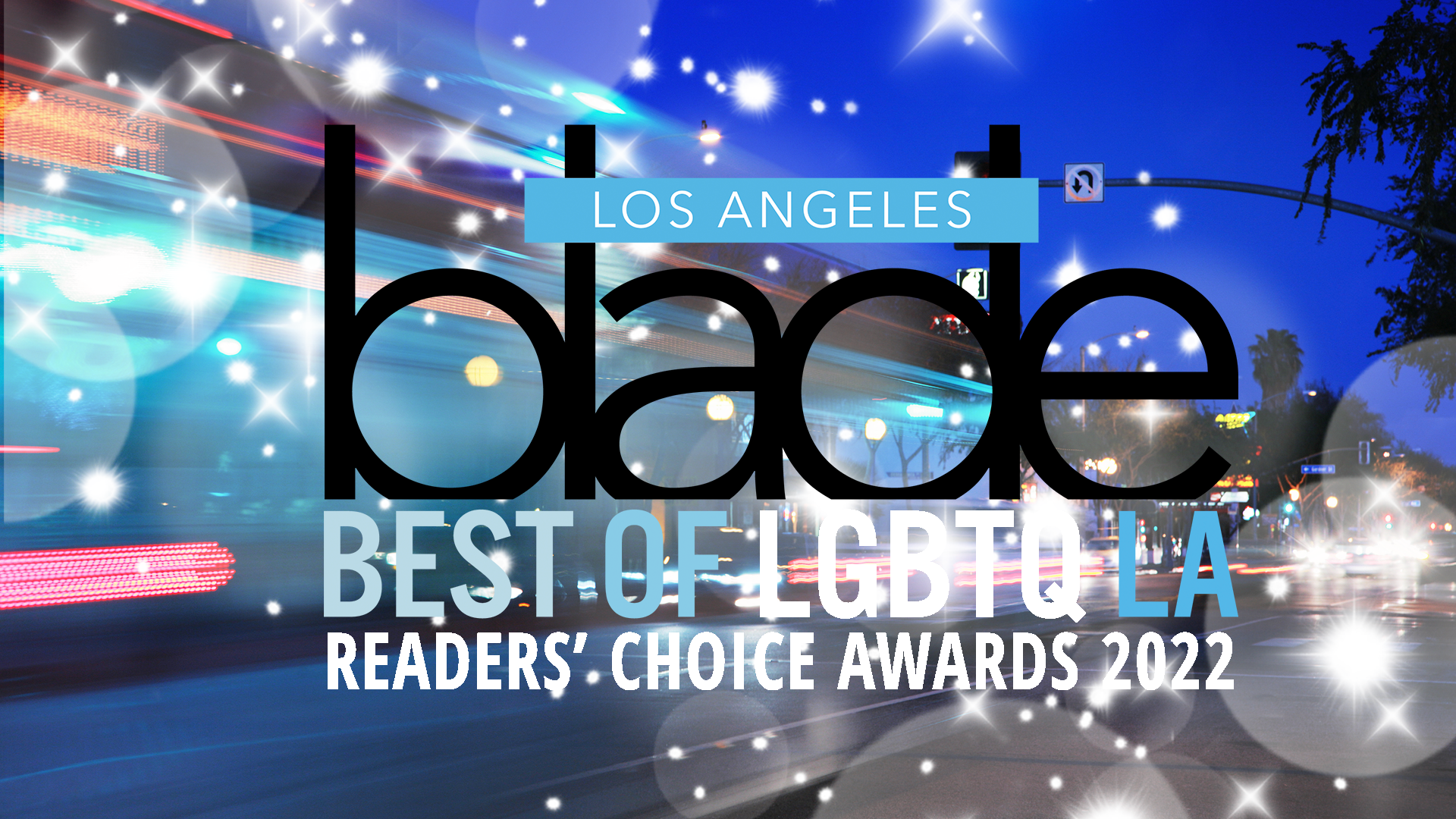
Welcome to the fifth annual special issue of the Best of LGBTQ LA.
The Los Angeles Blade is thrilled to celebrate the best of our community and all of the accomplishments that have been made throughout this past year. It was the year things were supposed to get back to “normal,” but really didn’t. During a year that started with an insurrection and ended with a new pandemic surge, here are some highlights of Los Angeles living, from drag to streaming services, that demonstrate the best of LA’s LGBTQ community.
Los Angeles Blade readers nominated finalists; the top five vote getters in each category were then added to the final ballot. Thousands of Blade readers then voted and the winners are presented here. The Blade staff congratulates each of this year’s winners and finalists.
Best Drag Queen: Rhea Litré
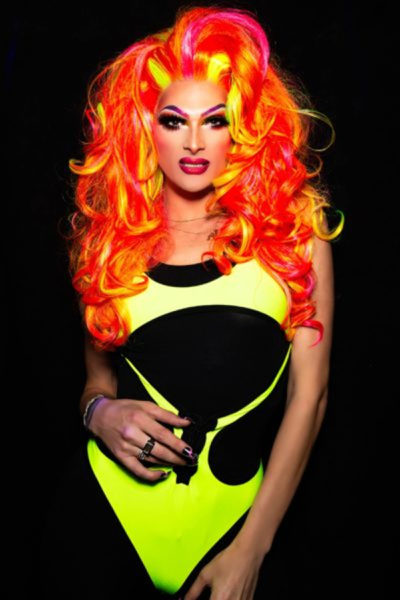
Rhea Litré describes herself as drag’s “Baddest Bitch.” It is not because she is “a bitch” but because she is bad at being one. LA Blade readers agree and have named her “Best Drag Queen” for a second year in a row. Last year, Litré decided to set up a live virtual drag show. According to Litré, “On March 16, 8 p.m. Pacific Time, we gave birth to the first digital drag show of its kind.” Litre went on to say, “There has been drag online for a long time, but as far as a conceptualized, produced show, that had never been done before.” You can find more information on Litré’s Instagram – quarantinequeendragshow
Editor’s choice: Jasmine Masters
Best LA-Based Drag Race Contestant (so far): Gottmik

Gottmik (Kade Gottlieb) was the first-ever transgender man to compete on RuPaul’s Drag Race and was a finalist in the show’s 13th season. Challenging the definition of modern drag and shaking up the “cis-tem” is intrinsic to Gottmik’s image and power. Gottmik’s work is a testament to the fluidity of the individual. Their career has taken them to the height of celebritydom as a makeup artist for some of Hollywood and New York’s biggest marquis names. Vogue called their look and style a kind of “show-stopping” glam. Los Angeles is lucky to be home to this revolutionary whirling dervish of talent.
Editor’s choice: Shangela
Best Drag King: Prinze Valentino
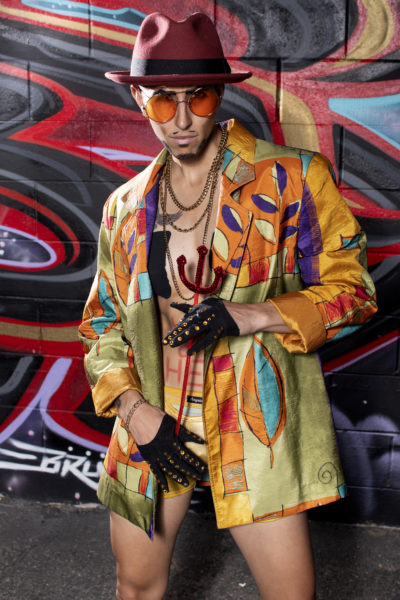
Prinze Valentino is a genderqueer performing artist who came to Los Angeles from Detroit. Each time Prinze steps foot on the stage he puts his passion into each movement with purpose and enthusiasm. He strives to be an empowering queer role model for the LGBTQ+ community. LA Blade readers think he hit that goal and voted him the best.
Editor’s choice: Landon Cider
Best Drag Show: ELOTERIA at Redline

Located in the heart of Downtown Los Angeles, Redline is one of the newer gay bars to hit the scene, and LA Blade readers love ELOTERIA, the Redline Saturday night drag show.
Editor’s choice: Makeout Mondayz at Rocco’s
Best Happy Hour: Rocco’s Tavern WeHo
Rocco’s Happy Hour is set in a sexy cocktail lounge. Rocco’s provides West Hollywood with a mix of weekly events featuring an open floor plan with lots of outdoor space. Friendliness is a brand trademark, and LA Blade readers seem to agree (especially those who like to start dinking early.)
Editor’s choice: Beaches
Best Neighborhood Bar: Abbey and Chapel
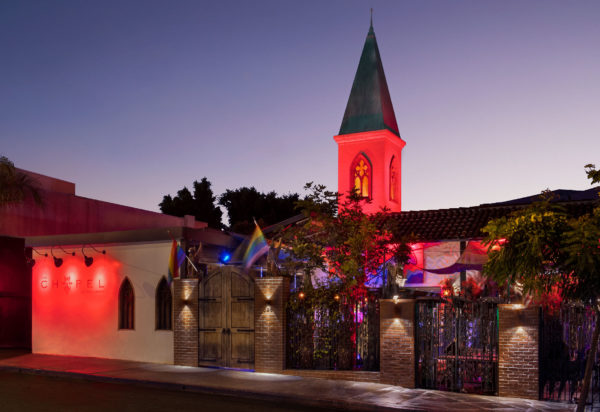
“The bartenders are amazing, very friendly and conversational!” The Chapel is the gay dance club in the heart of WeHo, the sister venue of The Abbey. LA Blade readers have declared it the best of Los Angeles’ most popular gay nightclubs. Go and enjoy the amazing DJs. Owner David Cooley has been an enormous supporter of the community with numerous fundraisers, the founding of the Gay & Lesbian Elder Housing project and supporting numerous LGBTQ organizations.
Editor’s choice: Hamburger Mary’s
Best Outdoor Dining/Drinking: Rocco’s
Launched in May 2019, Rocco’s is known as a popular LGBTQ bar, winning the LA Blade Best Happy Hour for 2022. Two years ago, Rocco’s won the Best Neighborhood Bar award and this year and last, Rocco’s has won for Best Outdoor Dining. Rocco’s is an inclusive space with LGBTQ décor that celebrates LGBTQ pride and history. The LA Blade’s readers chose Rocco’s as having the best outdoor dining due to its continued agility throughout the ongoing COVID-19 pandemic.
Editor’s choice: La Boheme
Best Brunch: Santolina
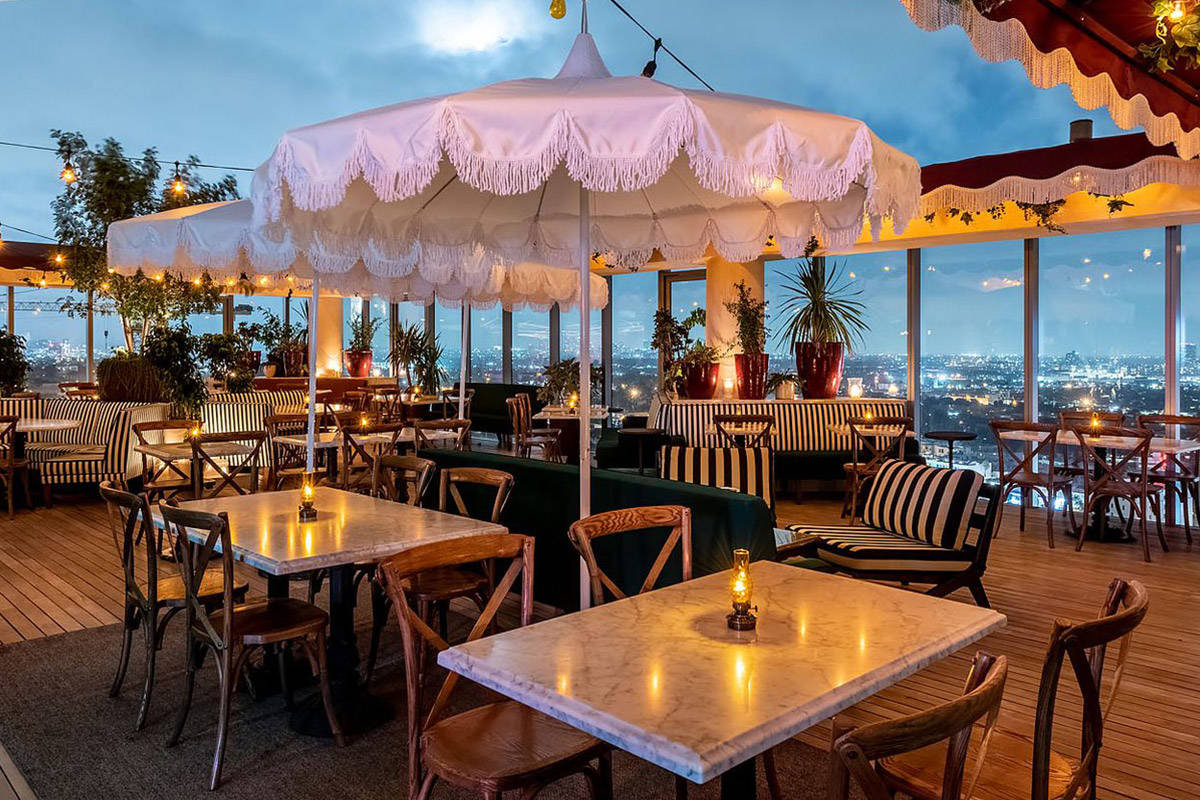
At Santolina, each dish on the menu tells a different story. The cuisine is a unique fusion of Tel Aviv meets California. Chefs Michael Teich and Burt Bakman infuse vibrant herbs into a health conscious offering that LA Blade readers definitely have eaten up and named as Best Brunch 2022.
Editor’s choice: Hamburger Mary’s
Best Bartender: Cesar Morales at Beaches
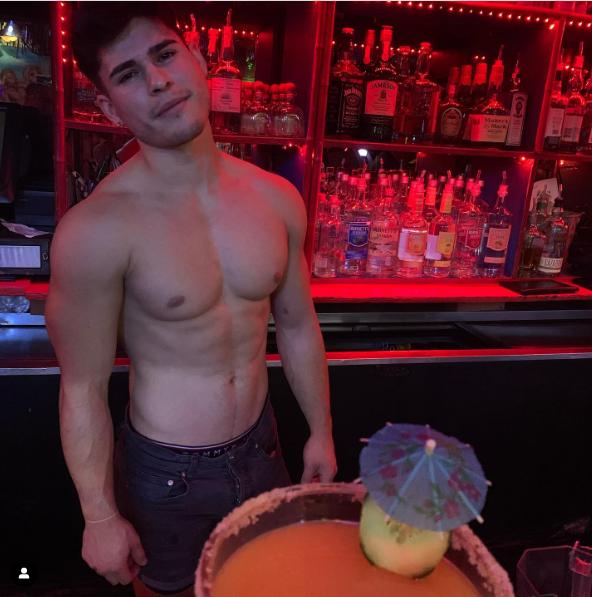
Beaches has become a gathering place for the social media creator and influencer community that has endorsed Cesar as a “super sweet and friendly” bartender who provides the very best in the hospitality Beaches has become known for. Cesar exemplifies The Beaches motto: ‘Be wild and free and look good doing it.’
Located in the heart of West Hollywood, Beaches is a strong, conceptually driven and fashionable LGBTQ+ focused hybrid restaurant and lounge.
The two-story space offers two full bars and VIP seating areas where guests can take a breather, have a cocktail or enjoy our one-of-a-kind California Cuban Cuisine. Enthusiastic patrons won’t be able to resist the pull of the energy on the main room equipped with a first-class lighting and sound system; the venue houses a DJ booth with the latest DJ equipment.
Editor’s choice: Eric Lutz at Rocco’s
Best DJ: Kimber Chronic

Kimber Chronic is an American DJ pop singer, songwriter, and music producer. She is known for working closely with the LGBTQIA+ community through her transgender activism. Named a “Hero of Diversity” by Stoli Vodka for her inspiring journey that began in the gritty heart of Detroit, Kimber is hands on in bringing her vision to life “of creating an arsenal of music that is married with visual themes of addiction, lust, and ferocity.”
Editor’s choice: DJ Morningstar
Best Restaurant: Bottega Louie

Bottega Louie adds this year’s LA Blade Best Restaurant 2022 to their long list of awards. The restaurant, which seemed to tease us mid-construction for centuries, boasts sweet and savory gourmet dishes, and valet parking. “They make ordinary items not so ordinary,” effuses one happy patron. LA Blade readers agree. It’s very likely the best place in Los Angeles to see and be seen. Hit the patio after you faint over the desserts.
Editor’s choice: Night+Market
Best Coffee Shop: Alfred Coffee Melrose Place
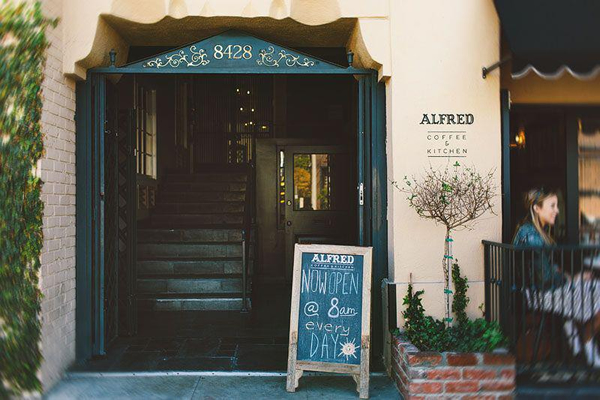
Stylish yet whimsical coffee shop serving coffee and juice, plus salads, sandwiches, and pastries.
Editor’s choice: Starbucks
Best Radio or TV Station: KTLA

This year, KTLA partnered with the Los Angeles LGBT Center and aired the “Love in Action” telethon hosted by Cher Calvin and Jai Rodriguez. The telethon supported the LGBTQ community during the COVID-19 pandemic. The telethon has raised several million dollars and featured a host of LGBTQ celebrities and allies. LA Blade readers sent back the appreciation to KTLA by naming them the best station in LA.
Editor’s choice: KCET PBS
Best Cannabis Business: Med Men
A recent review says, “Great experience there – my first time – and was greeted with a smile and good energy at the front door. Customer service was excellent – they asked what I liked, then swiftly showed me options and pricing and I was out the door in less than 4 minutes – literally. Plenty of easy parking too and five minutes from home – I think I found my new dispensary. Thanks MedMen.” LA Blade readers obviously agree.
Editor’s choice: Cannabis Café
Best LGBTQ-Owned Business: Out of the Closet Thrift Store
When you shop at Out of the Closet, 96 cents of every dollar goes back into HIV care and services. The chain is owned and operated by the AIDS Healthcare Foundation, a Los Angeles-based charity that provides medical, preventive, and educational resources for patients. “All of the proceeds go toward AIDS research. Love the cause and the workers were great,” observes one patron. LA Blade readers see it similarly.
Editor’s choice: The Abbey
Best LGBTQ Social Group: Impulse Group LA
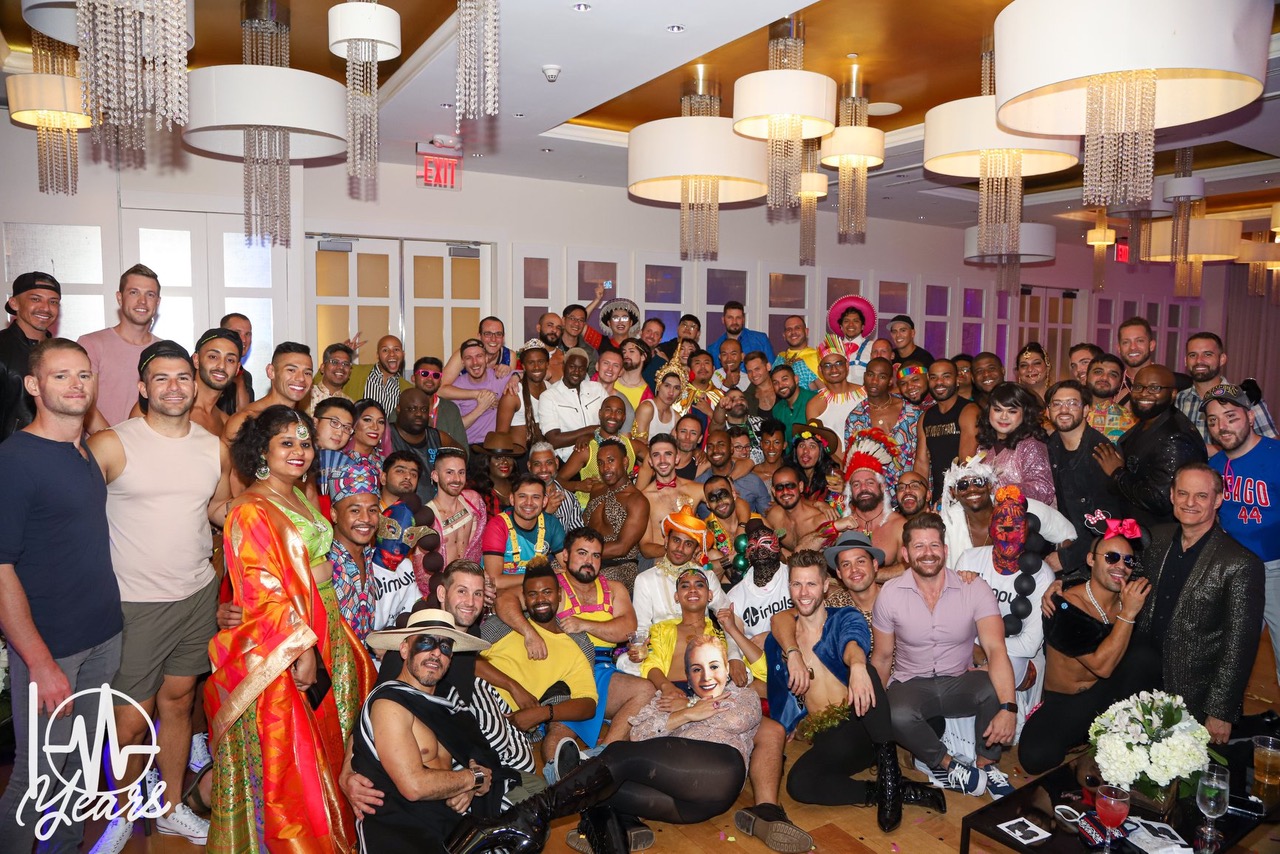
Winning this category for the second year in a row, Impulse Group LA was founded in 2009 by Jose Ramos. It is a nonprofit organization dedicated to building a stronger and healthier community for gay men. Hosting more than 400 events annually in 25 cities across the globe, Impulse seeks to create a brave space to engage, support, and connect our community.
Editor’s choice: AIDS LifeCycle
Best House of Worship: Kol Ami
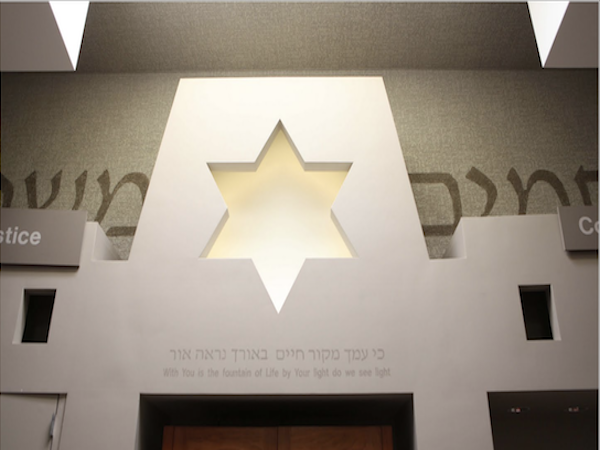
In 2019 and 2021, Congregation Kol Ami won the award for Best House of Worship. In 2020 it won Editor’s Choice, and now wins the award again for the Best House of Worship this year. Kol Ami is an important leader in the Jewish, LGBTQ, and West Hollywood communities since its founding in 1992. Rabbi Denise L. Egers broke barriers to create a more inclusive Reform movement that has resulted in more LGBTQ inclusion at synagogues worldwide. (1200 N La Brea Ave, West Hollywood)
Editor’s choice: Metropolitan Community Church, InVision Church (tie)
Most Committed Activist: Jose Ramos
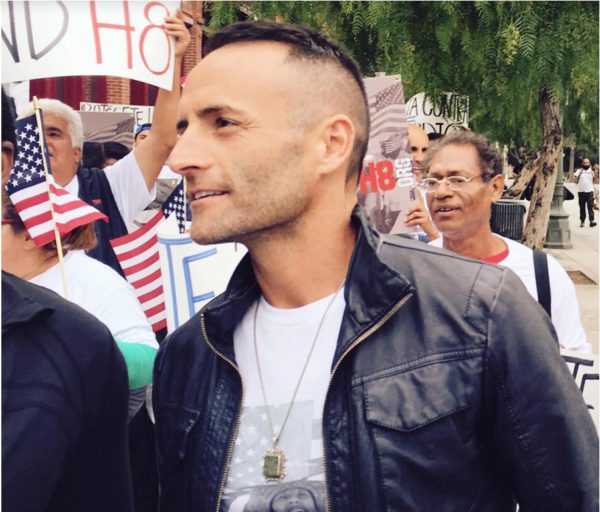
Jose has been described as “a fierce LGBTQ/HIV activist, leader, founder and president of Impulse Group, AFH Director of Western Sales, triathlete and former General Manager at Target North Hollywood.” An activist since he was 14 years old, Jose launched Impulse from his kitchen table in 2009. Of the name for the group, Jose explained to WEHO Times, “The name came because we felt that there was this very short time when we are about to have sex, that we may have the impulse to use protection or not; to ask questions about sexual health or not. It’s a split second when you make a decision about your health. Knowing that there is that urge, that impulse to act on your desires, we thought that the name “Impulse” fit really well with how we could help with moment of instinct–that split second. We wanted to empower gay men to make the best decision.” LA Blade readers salute his commitment to our community.
Editor’s choice: Queen Victoria Ortega
Favorite Public Official: Robert Garcia
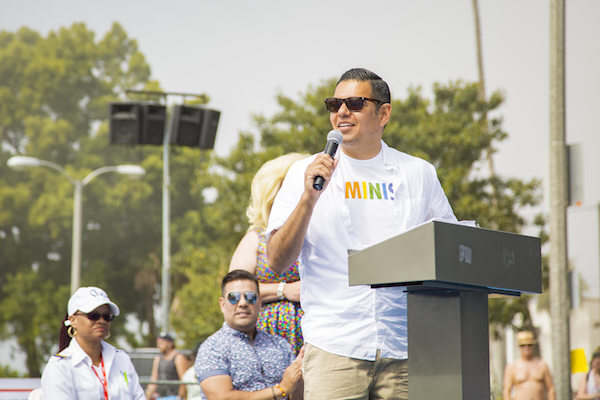
Garcia celebrated his 44th birthday on Dec. 2 and is a gay Latino originally from Peru. First elected to the city council in April 2009 to much fanfare as the Council’s youngest, first Latino male, and first gay person of color. He became Long Beach’s first gay mayor in 2014 with 52.1% of the vote
Garcia has deep ties to the Democratic Party’s leadership. In the 2020 campaign he was a prominent surrogate for Kamala Harris’s presidential campaign, later becoming a strong supporter of President Joe Biden. During the course of the ongoing coronavirus pandemic the mayor has acted in concert with California Gov. Gavin Newsom’s measures including masking mandates and the push to get Californians vaccinated.
The pandemic tragically impacted Garcia directly when in summer of 2020, he lost his mother, Gaby O’Donnell, and stepfather, Greg O’Donnell, to COVID. His mother was a medical assistant who immigrated from Peru when the mayor was five years old.
Editor’s choice: Lindsey Horvath
Most LGBTQ-Friendly City: West Hollywood
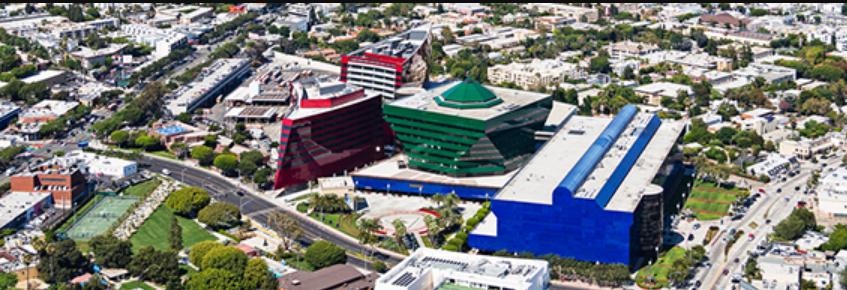
For the third year in a row, West Hollywood has won the award for the Most LGBTQ-Friendly City. As noted previously, West Hollywood has its “boutique hotels, celebrity-owned restaurants, unparalleled nightlife and shopping, and world-renowned events.” The inclusive city, one of America’s best run cities according to some, has multiple LGBTQ bars, restaurants, and nightlife and it’s no surprise that the LA Blade readers continue to choose West Hollywood as the Most LGBT-Friendly City.
Editor’s choice: Palm Springs
Best Local Pro Sports Team: The Dodgers
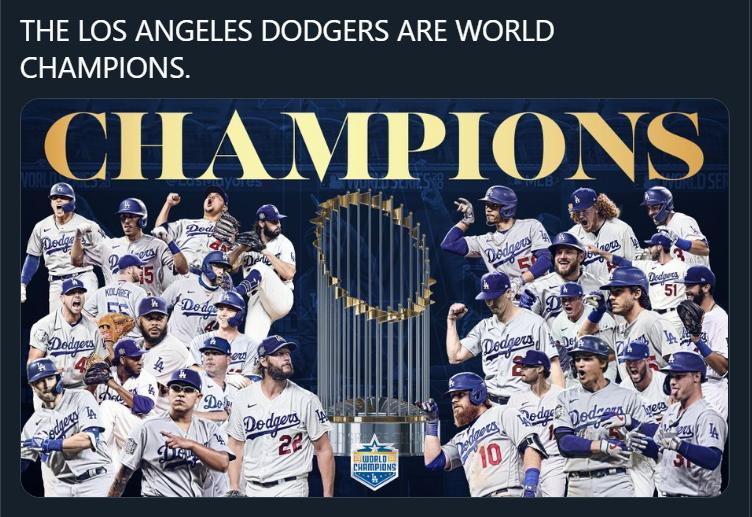
The Los Angeles Dodgers franchise wins for a second year in a row. With six World Series championships and 23 National League pennants since its beginnings in Brooklyn in 1890, The Dodgers are committed to a tradition of pride and excellence. The Dodgers are dedicated to supporting a culture of winning baseball, providing a first-class, fan-friendly experience at Dodger Stadium, and building a strong partnership with the community. With the highest cumulative fan attendance in Major League Baseball history and a record of breaking barriers, the Dodgers are one of the most cherished sports franchises in the world.
Editor’s choice: The Lakers
Best Real Estate Firm: Oppenheim Group
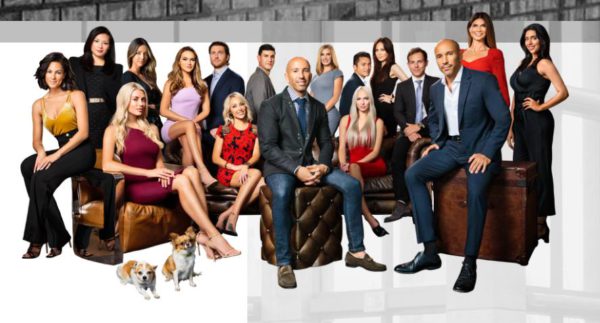
Made famous by the reality show, Selling Sunset, the award-winning Oppenheim Group is a professional real estate brokerage serving buyers and sellers of luxury property in Los Angeles and Orange County. The brokerage is comprised of a close group of talented Realtors, led by the firm’s president and founder, Jason Oppenheim. A recent client exclaimed, “I would not have known about Oppenheim Group if it was not for the show. Oppenheim Group is all about professional upmarket real estate, which you effectively deliver. You showed us such lovely and beautiful homes. I liked the fact that the agents research the history of the properties, have knowledge on the area of the property/rooms and work hard to sell a property. Now looking forward to the next season where we can see more beautiful homes. Well done Brett, Jason and team!”
Editor’s choice: Compass
Best Ally: Debbie Allen
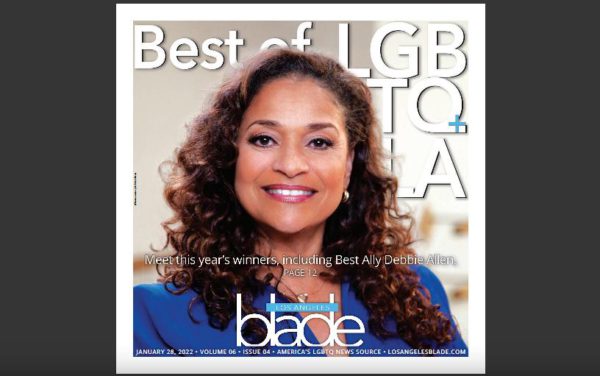
Debbie Allen received one of the 2021 Kennedy Center Honors and is receiving the 2021 Governor’s Award at the Emmys. She can now add LA Blade’s Best Ally 2022 to her award shelf. Allen was the producer of a landmark “A Different World” episode addressing AIDS and the Black community, and told AFROPUNK, “I’m happy to be here for World AIDS Day and to be working with AIDS Healthcare Foundation, it’s really just to highlight this war, this global war that we’re still in.”
Editor’s choice: Congressman Adam Schiff
Best Salon Spa: Shorty’s Barbershop
It is no contest. Shorty’s Barber Shop has won the Best Salon/Spa Award for the fourth year in a row. With amazing products and great haircuts, Shorty’s is a local favorite. In terms of its high quality products, all of them are ethically created and never tested on animals.
LA Blade readers continue to sing Shorty’s praises, “When you walk out with some merch (the styling putty and soy paste are customer favorites), you can feel good about that, too. Besides the perfect cut, Shorty’s also puts a premium on giving back, by working with the likes of Concrete Hero, AIDS Project Los Angeles, and the Los Angeles LGBT Center.”
Editor’s choice: Ole Henriksen Face/Body Spa:
Best Car Dealership: Honda of Hollywood
Honda of Hollywood exudes excitement to help its Los Angeles clients. “We take the time to explore the features that are important to you and our knowledgeable staff is here to answer all of your questions. But what would buying a new car be without a test drive first? Visit Honda Of Hollywood where we’ll get you out on the road to find a Honda vehicle perfectly suited to your needs,” they state. “Super easy, great service,” confirms one happy reviewer. LA Blade readers have test driven them into being the Best Car Dealership of 2022.
Editor’s choice: Mercedes Beverly Hills
Best Doctor/Medical Provider: AIDS Healthcare Foundation Clinics
An Editor’s Choice winner two years ago for Most LGBT-Friendly Workplace, AIDS Healthcare Foundation Clinics has won Best Doctor/Medical Provider for the second year in a row. They represent the consistently excellent work of doctors, physician’s assistants, nurse practitioners, med techs, benefits counselors, and support staff at 14 AHF Healthcare Centers and satellite clinics throughout Southern California. In its quest to rid the world of AIDS, this nonprofit organization provides cutting-edge medicine and advocacy in 43 countries. Locally, says AHF Senior Director of Communications Ged Kenslea, “Our ‘circle of care’ concept starts with free and accessible HIV testing. When called for, AHF then provides swift linkage to care and follow-up treatment. We try as best we can to keep the focus on the patient by serving as their partner in care, in order to make it easier for them to adhere to their medication and care regimens to help them achieve their best selves, health and wellness-wise.”
Editor’s Choice: Los Angeles LGBT Center
Best Fitness or Workout Spot: LA Fitness
One happy reviewer reports, “So happy to be back. Great gym. Can’t wait to use a locker again but I’m grateful they are being careful of covid. Clean, well-organized, and courteous staff for a much better price than the social club gym.” LA Blade voters agree.
Editor’s choice: Equinox
Best Home Furnishings: Living Spaces
Since December 2016, Living Spaces has brought a pressure-free furniture shopping experience to Los Angeles. Its two-story showroom boasts a variety of styles for every room in the house. Living spaces also carries hundreds of customizable styles in a special-order program. Living Spaces is so committed to offering their clients superior products at the best price, they will match a competitor’s price and take off an extra 10%. For that, and many other reasons, LA readers consider them the year’s best.
Editor’s choice: Restoration Hardware
Most LGBT-Friendly Workplace: City of West Hollywood

The City of West Hollywood regularly makes history. It was the first city in the nation to have a majority-LGBTQ governing body with its inaugural City Council when the city was incorporated in 1984. Today, the City Council is majority-LGBTQ and majority female. Starting in the darkest days of the AIDS crisis, West Hollywood became a beacon of hope in proving social services and support to LGBTQ community members and it has led the way in advocating for full LGBTQ equality. LGBTQ history-making extends to the city’s deep commitment to building an affirming work environment for LGBTQ employees. It’s no wonder the City of West Hollywood receives high marks from the community as the most friendly workplace for LGBTQ people.
Editor’s choice: Most LGBT-Friendly Workplace: Los Angeles LGBT Center
Best Non-Profit: Ariadne Getty Foundation
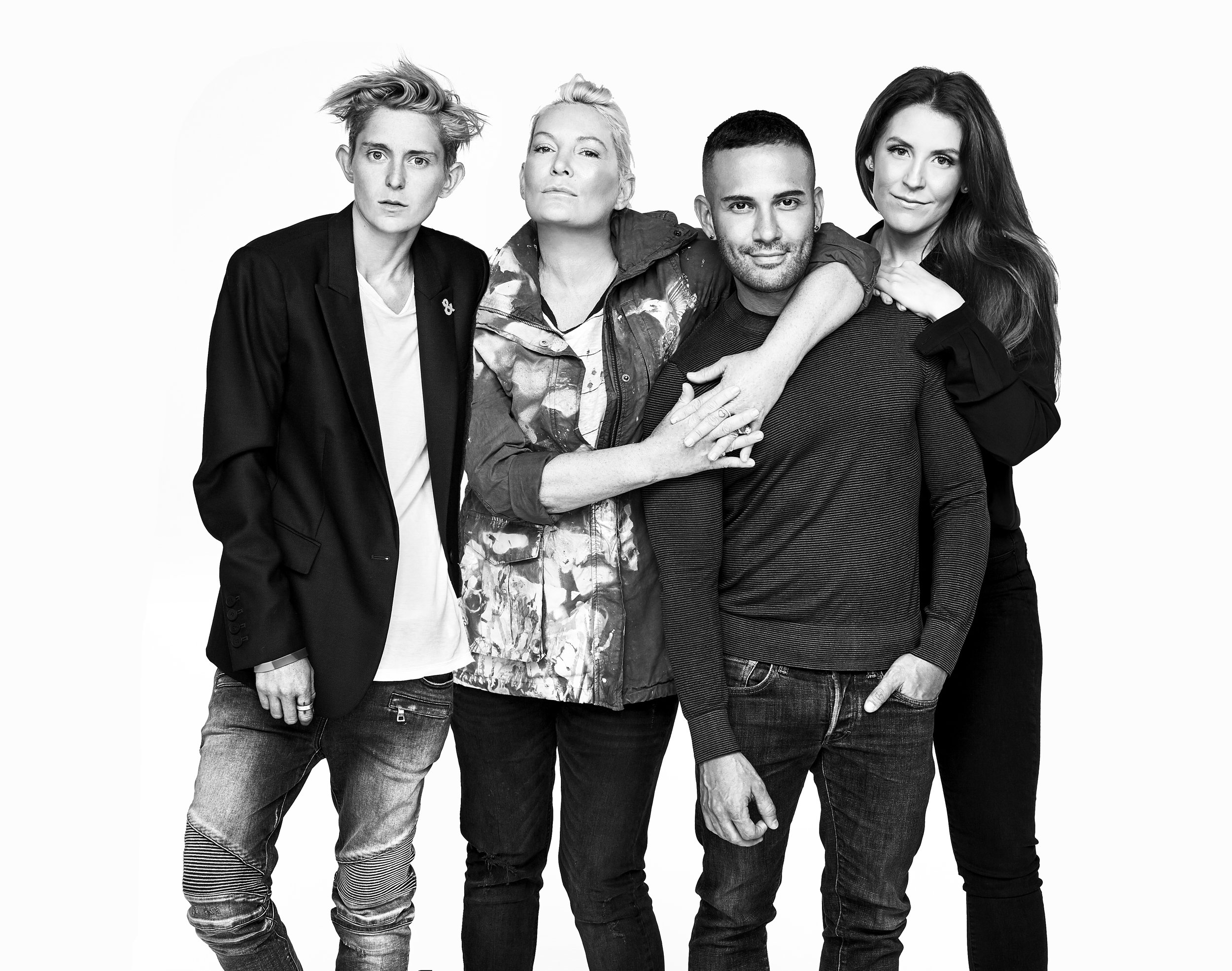
Founded in 2004, The Ariadne Getty Foundation works with partners worldwide to improve the lives of individuals and communities through financial investments and social activism. AGF is proud of its achievements and continues to ensure positive social and political change to further improve lives worldwide. Its namesake, Ariadne Getty, was voted 2020’s Best Ally by readers and presented the 2021 Hero of the Year Award by Los Angeles Blade publisher, Troy Masters.
In addition to her key support of LGBTQ journalism, major donations to GLAAD and others, this year saw the opening of The Ariadne Getty Foundation Senior Housing, a cutting-edge 70,000-square-foot building in Hollywood with 98 affordable housing units for seniors ages 62 and above, LA Blade readers certainly noticed.
In the last decade Ariadne has become an increasingly visible LGBTQ philanthropist, encouraging other people of means to back Queer causes. As the mother of two, Nats and August, she has embraced gender fluidity and also championed trans rights. Getty has also been the recipient of the Los Angeles LGBT Center’s Vanguard award (2018) as well as receiving award-winning magazine, Variety’s Philanthropist of the Year award in 2019.
Editor’s choice: Project Angel Food, Equality California (tie)
Best Pet Business or Vet: Laurel Pet Hospital

Located in the heart of West Hollywood, Laurel Pet Hospital has “general practice veterinarians and specialists in internal medicine, surgery, and dentistry, we provide high-quality medical care at a reasonable price. Our facility includes a well-stocked pharmacy, in-hospital surgery suite, digital X-ray equipment, dental radiography, endoscopy, ultrasound, CO2 laser capabilities, and a closely supervised hospitalization area.” Compassionate advice and optimal care are key values.
Editor’s choice: Wag
Best Grocery/Supermarket: Trader Joe’s
Trader Joe’s returns to the top of the heap having been named LA Blade’s Best Grocery for 2019 and 2018. In June 2021, Trader Joe’s gave all its stores nicely cut and potted rainbow roses in celebration of Pride month. Heidi Leindecker, an assistant manager for Trader Joe’s told mycustomer.com, “Trader Joe’s is a role model for hiring diversity and practicing inclusion. The company cultivates a positive image when it comes to inclusion and its brand amongst employees and consumers. Trader Joe’s puts the employee first and makes sure that everyone is treated with integrity and respect. Employees are treated equally in the same manner as customers are treated equally. As employees are treated well, the feeling naturally overflows to the customers’ positive shopping experience.” LA Blade readers feel the love.
Editor’s choice: Pavillions
Best Museum or Art Gallery: Getty Center

Editor’s choice: Los Angeles County Museum of Art (LACMA)
Best A&E Venue: Hollywood Bowl
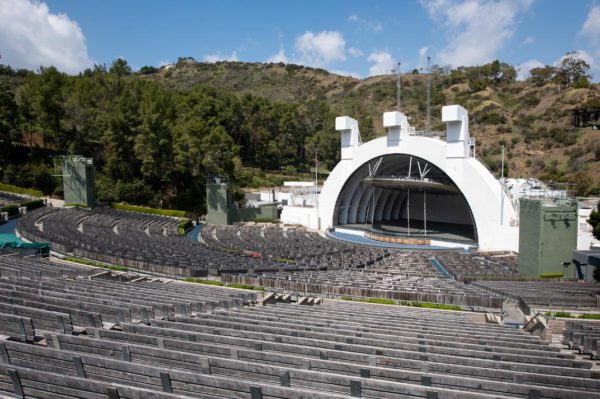
Last year the Hollywood Bowl won for Best Virtual A&E Events. This year it is the Best A&E Venue, which demonstrates that live or virtual, in the eyes of LA Blade readers, it is the best. Since its opening in 1922, the Hollywood Bowl has been the premier destination for live music, hosting everyone from Billie Holiday to The Beatles to Yo-Yo Ma under the iconic silhouette of its concentric-arched band shell.
Editor’s choice: Greek Theater
Best Outside LA Getaway: Palm Springs
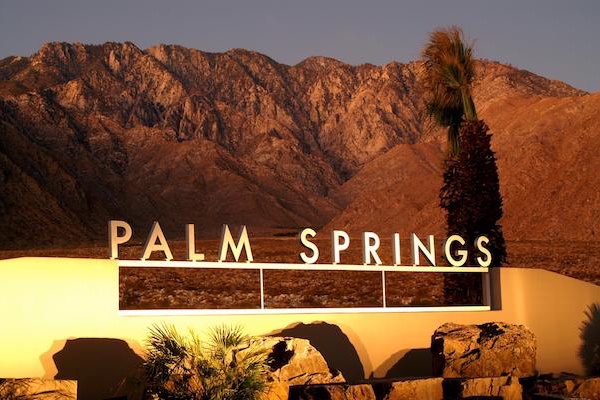
Palm Springs is so interested in attracting the LGBTQ community that its Visiting Greater Palm Springs website calls out the community specifically. “Ready to take a hiatus from virtual events and Zoom meetings? We don’t blame you. The desert has long been a soothing oasis for the LGBTQ community with its poolside siestas, innovative cuisine, trendy shops and outdoor activities, but now, more than ever, those things have become more than luxuries. They are necessities for self-care and rejuvenation. Consider the following list of hot spots and activities and make a splash—literally—with your best LGBTQ getaway yet,” states author Greg Archer. LA Blade readers apparently are ready to pack their bags and happily head to the desert.
Editor’s choice: Las Vegas
Best Hotel: Le Parc
The Le Parc Suite Hotel is a groundbreaking boutique hotel in West Hollywood featuring sophisticated suites and a sky deck overlooking Los Angeles.
Le Parc Suite Hotel’s extraordinary renovation embraces the local arts community and memorializes the city of West Hollywood’s diversity. Already a well-known retreat for rising stars and trendsetting celebrities, Le Parc combines the city’s design-forward aesthetic with residential-style suites. Its new LOVE mural, designed by large-format fine artist Scott Hile, of Free Spirit Fine Art, embodies the spirit of Le Parc Suites.
Editor’s choice: Sofitel Beverly Hills
Best LGBTQ Event: OutFest
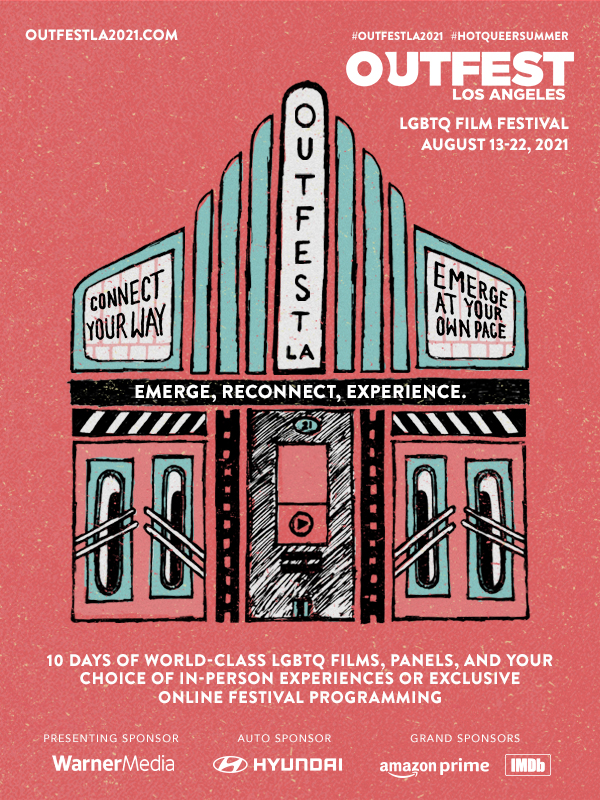
Each year since 1979, OutFest has been a staple film festival in Los Angeles, held during LA’s Pride season and growing in importance to become the world’s largest such festival.
Today, it is one of Los Angeles’ most anticipated such events, even hosting events across the country. It has garnered the attention of the Academy of Motion Pictures and Sciences and even helped open the new Academy Awards Museum, hosting the billion dollar facility’s first live and in person event, Outfest Legacy Awards Gala in November. Outfest also hosts year-round programming that gives artists, filmmakers and entertainment professionals the opportunity to discover their voice, provide the pathways to the visibility of their work by all members of the public, and assure that their legacy will live on for generations to come.
Outfest strives to increase LGBTQIA+ visibility, strengthen understanding and create meaningful change by building empathy for our cause among the general public and the LGBTQ community by honoring excellence in telling the stories of our community.
Editor’s choice: DTLA ProudOutFest
Best Streaming Program Performance: Ben Aldridge
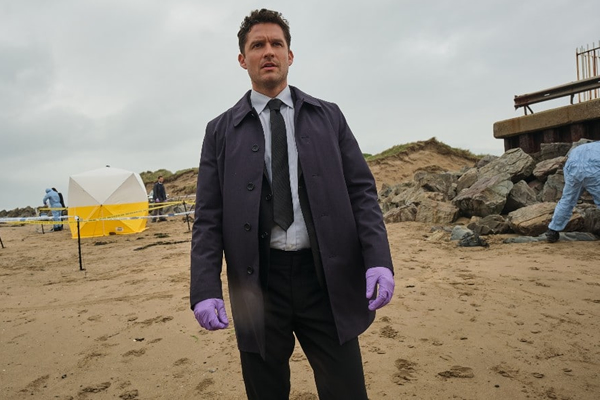
Out British actor Ben Aldridge had two prominent roles streamed by LA Blade readers this year. He is well regarded for his role in “Pennyworth” as Bruce Wayne’s father, Thomas, the action-packed prequel story that was picked up by HBO Max this year. It was likely Aldridge’s other critically acclaimed role seen on Brit Box that thrilled Blade audiences. In “The Long Call,” he plays a gay man returning to an evangelical community that had rejected him years earlier. He is now a detective being asked to solve the mystery of a body found on the beach. Aldridge has had a great year, also being nominated for a GLAAD Award.
Editor’s choice: Ewan McGregor- Halston (Netflix)
Best Streaming Service: Amazon
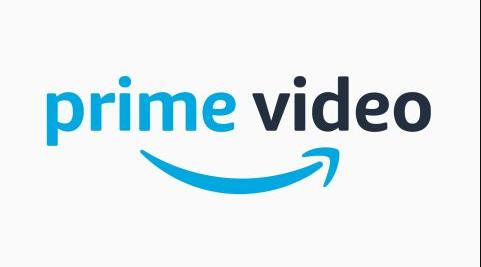
Amazon Prime has so many LGBTQ-themed movies that it has constructed a top 20 list. The movie “Rocket Man” from 2019 tops the list. The list includes 2019’s “Halston,” 2020’s “Shubh Mangal Zyada Saavdhan,” and “Lez Bomb” and “Believer,” from 2018.
Best Indie Streaming Service: Brit Box
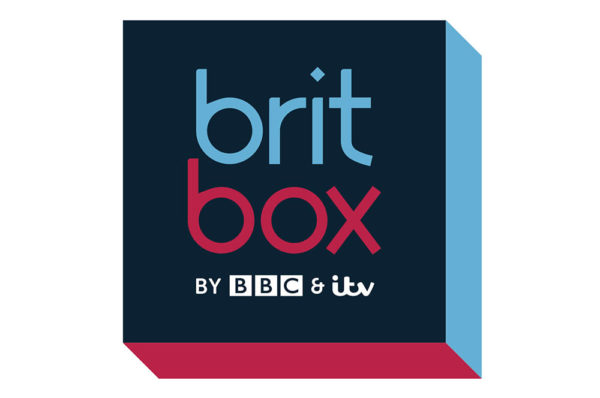
Turn on your TV and head to the UK! No travel, no stress – just the best and biggest collection of British television in the U.S. and Canada on the digital video subscription service, BritBox. The streamer was created by two British content powerhouses—BBC Studios and ITV, the UK’s biggest broadcaster. BritBox features exclusive premieres, celebrated lifestyle and current series and iconic favorites, along with daytime dramas — most available within 24 hours after their UK premiere. BritBox also offers excellent curation, live programming and a user-friendly experience.
Editor’s Choice: Revry
********************
Television
‘Laid Bare’ isn’t your typical sexy slasher
Actor Ethan Daniel Corbett discusses the horrifying amount of heart at the center of this thriller series.

‘Bury your gays’ is a common trope in horror, referring to the unbelievable ways that this genre has historically killed off its queer characters. Usually preceded by numerous scenes of harmful stereotyping, for decades, LGBTQ+ folks in any kind of scary project were viewed as nothing more than joke fodder and additions to the body count. Luckily, that’s shifted in recent years; frustrated by the medium’s toxic tendencies, thriller fans began creating their own projects centering queer themes and identities. From I Saw the TV Glow to The Fall of the House of Usher, it’s been heartening to see horror, thriller, and mystery genres finally begin to respectfully showcase the queer communities who’ve always loved them. It’s a greatly welcomed trend, and it just gained one of its sexiest, most intriguing additions yet in the form of OUTtv’s new thriller series, Laid Bare.
Set in a clothing-optional resort, this blood-soaked mystery follows a group of gay men summoned by the dying wishes of late millionaire Nikos Lambrakis. Guided by the rich man’s two wayward sons, they learn that despite having wronged the tycoon before his death, he’s left them each a sizable amount of money in his will. But, there’s a catch: they’re only able to get the cash after staying at the resort for a set number of days. And if, for some reason, one of them were to die…his funds would be distributed amongst the remaining, with each of them growing richer as the victim’s body begins to rot. It’s a chilling caveat on the gift of a lifetime, and it leads to one of our cast becoming a silent killer, stalking the other men across this nude paradise, ready to end their lives in the bloodiest ways imaginable.
An ingenious, sex-fueled twist on mystery tropes that many fans will know well, Laid Bare stands out as a thriller project filled with LGBTQ+ voices behind and in front of the camera. It serves as an unsettling, sexy dissection of modern queerness, and for its star Ethan Daniel Corbett, it made for one of the most affirming roles of his career.
“I usually play villains,” said Corbett, as he discussed his performance as Alistair in Laid Bare with the LA Blade. “But being able to play someone who is so chaotic…it was so much fun to do.” The actor’s joy is evident every second he’s onscreen; Alistair is one of Nikos’ two sons who, to the frustration of his harried brother, views his father’s resort as nothing more than a chance to get naked and flirt with cute guests. But as the bodies begin to pile up, he adds a hilariously chaotic sense of panic to the proceedings, allowing Corbett to act in a way he’d never been able to before. “It’s just refreshing to do something unique,” the man continued. “To have a queer story where it’s not necessarily tied to past trauma about being queer. [These characters] are already out, they are who they are, and they’re comfortable with who they are.”
And comfortable they definitely are, as any discussion of Laid Bare wouldn’t be complete without speaking about one of the series’ most notable elements: its constant nudity.
Laid Bare never shies away from the nude sights that a clothing-optional resort would entail. It may shock watchers at first to see such bold displays of body, but Corbett emphasized that the men’s nakedness wasn’t just to surprise viewers — their nudity serves to subvert the genre conventions that horror fans are used to. “I find that it’s a really interesting way to do a murder mystery, because a lot of that time, a major part of [the mystery] involves hidden weapons and how much people can get away with. I thought [the nudity] was actually a really unique, interesting take.”
Not only that, Ethan discussed that the nudity was an utterly revealing mechanism used to explore one of the core aspects of Laid Bare: the experience of being a gay man today.
“To be able to watch this and see men being vulnerable and leaning on each other…I feel like that is something missing in today’s world. Being able to count on each other during hard times.” The performer expressed his disappointment in this absence not only within heterosexual circles but also in queer ones. It’s an unfortunate truth that many LGBTQ+ spaces meant to be welcoming can often feel exclusionary for those who aren’t queer in ‘the right way.’ This aspect of modern queerness shows up often throughout the series, with the men’s many arguments and cruel words echoing sentiments that, unfortunately, still exist within gay circles today. “I think it can hold a mirror up to the queer community. I know it’s not the case for [everyone], but sometimes you find that if you don’t look a certain way, or you don’t act a certain way, you’re [not allowed] in.”
Ethan teased that this particular allegory is explored constantly throughout Laid Bare, along with discussions of sex work, harmful intellectualism, and toxic masculinity (all set against the backdrop of a terrifying killing spree). But even with all of this animosity and bloodshed on display, he raved about what an amazing experience filming this project was — and it was all thanks to Laid Bare’s cast and crew.
Even in movies and series centered around queer identity, it can be hard to find a crew stacked with people who personally understand the themes playing out onscreen. Corbett emphasized how thoroughly queer almost everyone associated with this show was, saying, “Behind the scenes, it was one of the most supportive casts and crews I’ve ever worked with. It was really encouraging for me to know that these people [weren’t only] great, but were also specifically a part of our community.” He discussed how this intimate awareness made him feel comfortable with not only the nudity but the intense emotionality of Laid Bare, with everyone involved with the project ensuring that it was a comfortable space for all. “I think this is honestly the first time I was able to fully express [my queerness], exploring that part of my craft and the industry as a whole.”
It was heartening to hear Ethan Daniel Corbett’s amazing experience acting in Laid Bare, with his time on the series stressing why it’s important to have professionals in the entertainment industry who truly understand the queer experience today. It’s an intimate kind of finesse that allowed for not only the actor’s great performance, but the success of this program as a whole. And, with the Laid Bare gaining a massive fandom online and becoming one of OUTtv’s most talked about projects to date, it hopefully signals even more terrifyingly inclusive projects for thriller fans in the near future.
Laid Bare is now streaming on OUTtv.
a&e features
Amy Madigan finds herself on the cusp of Oscar glory. Can she overcome the historic bias against horror performances?
How history and stats make this year’s supporting actress race the toughest to call
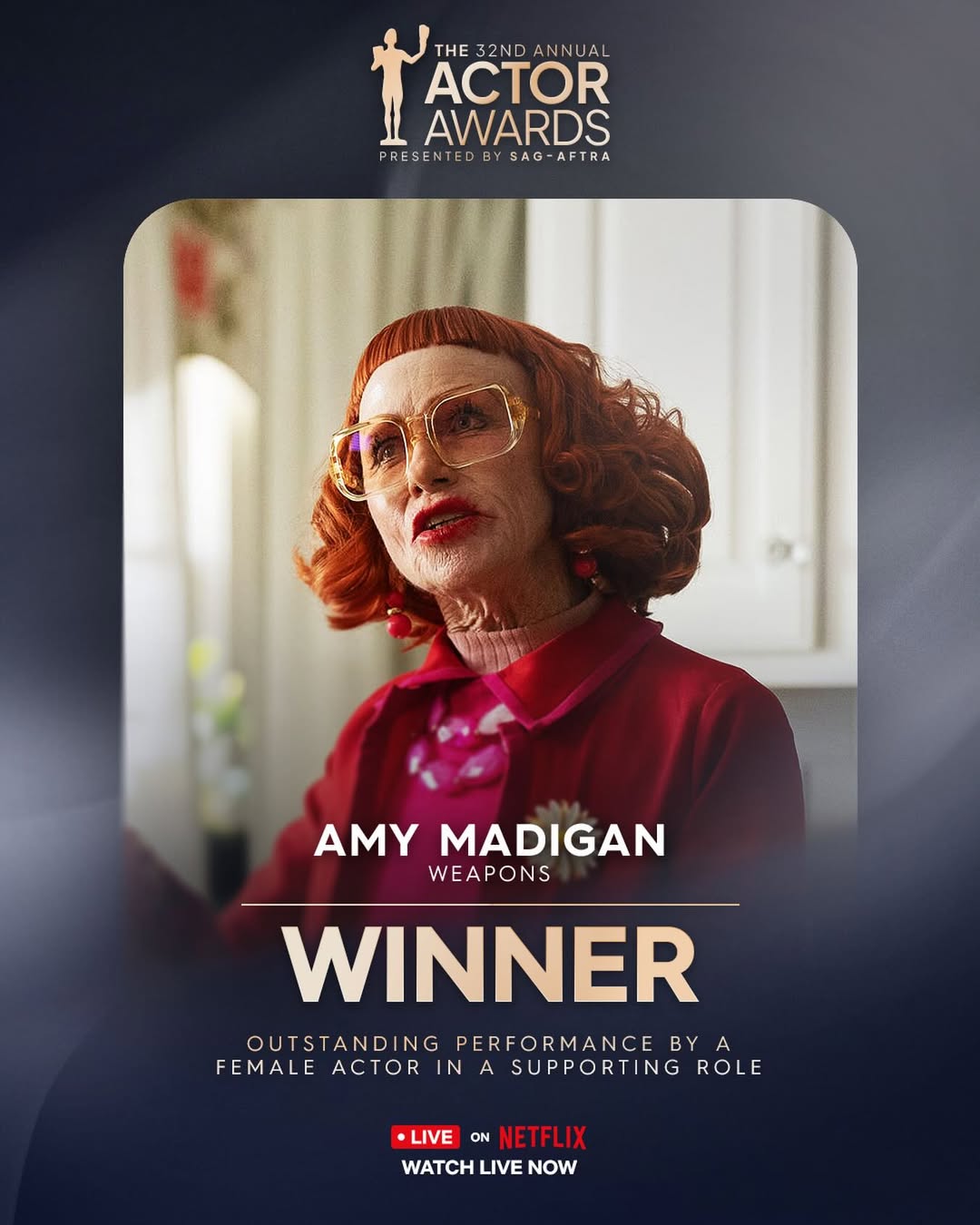
One of the biggest headlines out of last night’s Actor Awards (formerly known as the SAG Awards) was Amy Madigan winning best supporting actress for her work in Zach Cregger’s hit horror comedy Weapons.
As she stepped on stage during the last major televised ceremony of the season — a crucial platform as Oscar voting continues through Thursday, March 5 — Madigan charmed her fellow actors and peers, shouting out fellow Weapons actors Julia Garner, Alden Ehrenreich, and Austin Abrams and remarking on how “actors love other actors.” In a moment where she would’ve been completely justified to simply relish in personal victory after working at her craft for 45 years, Madigan turned the spotlight on the collaborators who made her remarkable transformation as Aunt Gladys possible.
As she finds herself on the cusp of Oscar glory, Madigan is also on the cusp of breaking through the Academy of Motion Pictures Arts and Sciences’ historic bias against horror performances (remember Toni Collette in Hereditary and Florence Pugh in Midsommar?) But it’s that same bias that could keep the Field of Dreams actor from going all the way.
Last year, best actress frontrunner and The Substance star Demi Moore lost the Oscar to Mikey Madison in the best picture winner, Anora. Moore won major awards at the Critics Choice, Golden Globes, and Actor Awards, while Madison won at the BAFTAs and Spirit Awards. The Substance certainly tested Oscar voters more with its ultra-shocking body horror, but Madigan’s trajectory with Weapons hasn’t been too far off from Moore’s — she’s a veteran actor finally getting her dues for an out-there horror performance in an even more out-there film. You could argue Madigan has the most identifiable career narrative of the season, and she gave one hell of a memorable performance that instantly went viral.
She’s been here before; in a fitting full-circle moment, Madigan received her first and, to date, only other Oscar nomination exactly 40 years ago for 1985’s Twice in a Lifetime, an indie drama starring Gene Hackman, Ellen Burstyn, and Ann-Margret (Madigan was the sole nominee for that film). The Oscar-winning group that Madigan hopes to join come March 15 is comprised of Jodie Foster and Anthony Hopkins for The Silence of the Lambs, Kathy Bates for Misery, Fredric March for Dr. Jekyll and Mr. Hyde, and Ruth Gordon for Rosemary’s Baby. A small group, but mighty company for the lucky actor who joins it next.
Madigan’s trajectory has already been compared to Gordon and Rosemary’s Baby, and rightly so — Gordon won the supporting actress Oscar in 1969 on her second acting nomination, while box office hit Rosemary’s Baby was only nominated for one other award (best adapted screenplay). Weapons was an undeniable summer sleeper hit, grossing $269 million worldwide and earning a coveted nomination from the Producers Guild of America, yet Madigan was the only part of the film to be Oscar-nominated. Her two main competitors, which include BAFTA winner Wunmi Mosaku for Sinners and Golden Globe winner Teyana Taylor for One Battle After Another, have the benefit of being in best picture frontrunners with 16 and 13 nominations apiece. Those films also have top-of-the-line visibility from distributor Warner Bros. Pictures.
With the uncertain state of the supporting actress race so far, Madigan has history going both for and against her; the past six Actor Award winners for supporting actress, most recently Zoe Saldaña for Emilia Pérez and Da’Vine Joy Randolph for The Holdovers, all went on to win the Oscar. But those six actors were in films with multiple Oscar nominations, including best picture, and four of the six swept all the major precursors. Notably, the last time the Actor Awards mismatched with the Oscar supporting actress winner was in 2019, when Emily Blunt won for A Quiet Place (she wasn’t even nominated for the Oscar!)
As the sole rep of her film in a fractured category, Madigan has more odds stacked against her. One could also argue, though, that Madigan being the sole nominee of her film means all the campaigning has been able to strategically focus on getting her the win. Whether she prevails at the Oscars or not, she’s certainly had a blast on the campaign trail, enjoying the likes of Oscar winner Sally Field and Emmy winner Hannah Einbinder hosting Weapons screenings, tastemaker events, and Q&As over the past several months.
Madigan’s performance as Aunt Gladys has resonated with horror fans for skillfully playing the character’s terrifying turn from chatty neighbor to demonic hair-splitting killer, while the LGBTQ+ community has embraced her entire look and ethos. Aunt Gladys costumes could, predictably, be seen everywhere on Halloween, and she’s become an unstoppable inspiration for drag artists and performers. In a recent interview with Turner Classic Movies, Madigan even noted Bette Davis and What Ever Happened to Baby Jane? as a major inspiration for Aunt Gladys’ makeup and look.
Madigan told Rough Draft Atlanta in November, “I think in that realm – as someone who was bullied a lot as a kid – whenever you see characters like Gladys being proudly themselves and loud and open, there is something that resonates [with] the queer community and everybody, because that is what people want – the courage to be themselves.”
Madigan was in good company last night, with Sinners aiming to continue making history for horror cinema after its record-breaking 16 Oscar nominations. At the Actor Awards, Michael B. Jordan won best actor and the film’s ensemble took the top award, while Mosaku won best supporting actress at the BAFTAs. Jacob Elordi, who won best supporting actor at the Critics Choice Awards for Frankenstein, is nominated at the Oscars as well.
Not all these actors are odds-on favorites to win their respective categories, but 2025 horror performances have already broken through with Academy voters in the nomination stage. It wasn’t too long ago when millions of people watched Weapons in a crowded theater and discovered Madigan’s transformative talent for the first time, with some immediately writing her off from the Oscar race based on historical precedent. It’s only fitting that Aunt Gladys and the chameleon actor who brought her to life continue to prove us wrong.
Books
Love or fear flying you’ll devour ‘Why Fly’
New book chronicles a lifetime obsession with aircraft

‘Why Fly’
By Caroline Paul
c. 2026, Bloomsbury
$27.99/256 pages
Tray table folded up.
Check. Your seat is in the upright position, the airflow above your head is just the way you like it, and you’re ready to go. The flight crew is making final preparations. The lights are off and the plane is backing up. All you need now is “Why Fly” by Caroline Paul, and buckle up.

When she was very young, Paul was “obsessed” with tales of adventure, devouring accounts written by men of their derring-do. The only female adventure-seeker she knew about then was Amelia Earhart; later, she learned of other adventuresome women, including aviatrix Bessie Coleman, and Paul was transfixed.
Time passed; Paul grew up to create a life of adventure all her own.
Then, the year her marriage started to fracture, she switched her obsession from general exploits to flight.
Specifically, Paul loves experimental aircraft, some of which, like her “trike,” can be made from a kit at home. Others, like Woodstock, her beloved yellow gyrocopter, are major purchases that operate under different FAA rules. All flying has rules, she says, even if it seems like it should be as freewheeling as the birds it mimics.
She loves the pre-flight checklist, which is pure anticipation as well as a series of safety measures; if only a relationship had the same ritual. Paul loves her hangar, as a place of comfort and for flight in all senses of the word. She enjoys thinking about historic tales of flying, going back before the Wright Brothers, and including a man who went aloft on a lawn chair via helium-filled weather balloons.
The mere idea that she can fly any time is like a gift to Paul.
She knows a lot of people are terrified of flying, but it’s near totally safe: generally, there’s a one in almost 14 million chance of perishing in a commercial airline disaster – although, to Paul’s embarrassment and her dismay, it’s possible that both the smallest planes and the grandest loves might crash.
If you’re a fan of flying, you know what to do here. If you fear it, pry your fingernails off the armrests, take a deep breath, and head to the shelves. “Why Fly” might help you change your mind.
It’s not just that author Caroline Paul enjoys being airborne, and she tells you. It’s not that she’s honest in her explanations of being in love and being aloft. It’s the meditative aura you’ll get as you’re reading this book that makes it so appealing, despite the sometimes technical information that may flummox you between the Zen-ness. It’s not overwhelming; it mixes well with the history Paul includes, biographies, the science, heartbreak, and exciting tales of adventure and risk, but it’s there. Readers and romantics who love the outdoors, can’t resist a good mountain, and crave activity won’t mind it, though, not at all.
If you own a plane – or want to – you’ll want this book, too. It’s a great waiting-at-the-airport tale, or a tuck-in-your-suitcase-for-later read. Find “Why Fly” and you’ll see that it’s an upright kind of book.
The Blade may receive commissions from qualifying purchases made via this post.
Television
Sexy financial drama ‘Industry’ is feeding the queer community
The provocative HBO Max series finishes Sunday
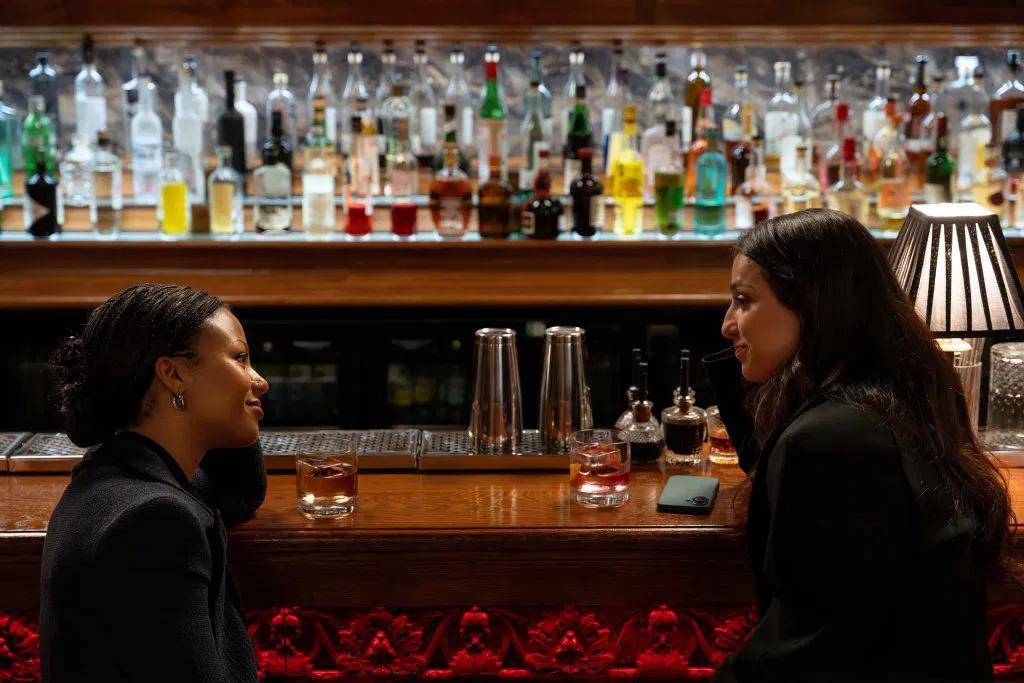
There has been a lot of hullabaloo about the runaway straight female fandom of Heated Rivalry. Queer people, especially gay men, have been cherry-picking from pop culture for years, choosing divas and himbos as queer placeholders. Currently, straight women are enjoying the man-on-man sex, romance, and drama of the smutty hockey show. On the same network, Industry has been feeding the queer community for years, with its fourth season ending this Sunday.
Set in the UK, Industry follows the sordid sex and work lives of a bunch of young financial movers and shakers. It features straight people having sex and doing drugs like your favorite, or least favorite, circuit queens. Add to this dialogue that matches Ryan Murphy-level shade and drama worthy of your favorite soap opera, this show has everything the queers love: sex, shade, and drama.
The cast features Myha’la as Harper Stern, a petite power top who refuses to let her race, stature, or the law stop her from making her bag. Marisa Abela plays Yasmin Kara-Hanani, a polyglot trophywife who’s aspiration is often undone by her sordid history, self-destructive tendencies, and the underestimation of her peers. Ken Leung plays Harper’s verbally abusive and morally bankrupt mentor. The past three seasons also featured Harry Lawtey as Robert Spearing, the working-class bisexual eye candy.
The fourth season added Kiernan Shipka as a provocative sex pot executive assistant, and Stranger Things star Charlie Heaton as a disgraced journalist working on a career-saving story. The Handmaid’s Tale star Max Minghella plays a suspicious CFO with a secret.
Each season, the series has brought us memorable scenes ranging from a Muslim businessman boofing cocaine up Lawtey’s behind, a full frontal of Fire Island star Joel Kim Booster, and the cast bedhopping more than the cast of Friends. This season also features Kit Harington at a gloryhole. Yes, Jon Snow gets a blowie. Shock value aside, the show has it all.
The series began as an ensemble drama of young upstart traders dealing with the perils of making boku bucks in London and the toll of working in the financial industry. It’s loosely inspired by creators Mickey Down and Konrad Kay’s time as investment bankers. The first season also featured David Jonsson as a queer conservative with a secret boyfriend. The series began to morph into a complex morality tale exploring the themes of grief, corruption, addiction, and ambition.
The series was just confirmed for a 5th and final season, and the announcement was Abela and Harrington’s fictional framed wedding photo covered with lines of cocaine. This series is a must-see and gives queer folks the chance to be lookey-loos. Enjoy the self-destructive journeys of hypersexual, impulsive, risk addicted singles with as much treachery as The Traitors and more cohesive story development than a Ryan Murphy series.
Now’s the perfect time to binge the series and see for yourself. But be warned, the series is highly addictive, and there will be some delay before season 5 is released.
a&e features
Taylor Tookes wants you to be your own beauty standard
This queer model wants her fans to be larger than life — even if they’re only 5’1”
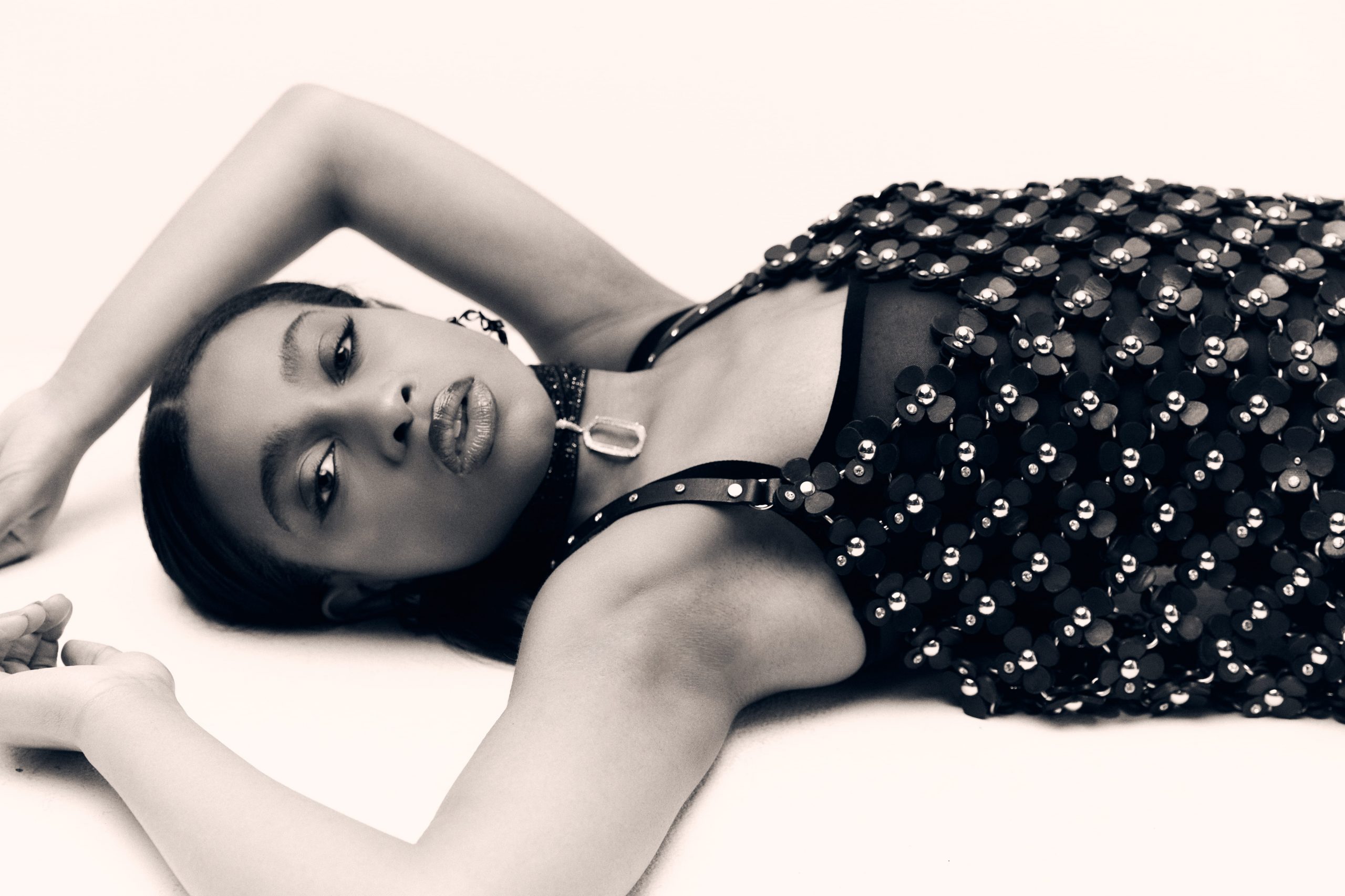
There’s a certain truth when it comes to the fashion industry: it’s absolutely brutal.
It’s undeniable how much fashion drives culture; from the clothes folks wear to the influencers taking over social media, this endlessly complex business determines so much of your average person’s day-to-day life. With this being such a gargantuan industry, it’s no wonder why it’s so difficult to be a successful model — especially if you’re marginalized! While recent years have seen a welcome increase in LGBTQ+ models, models of color, and models who don’t fall into your typical beauty standards, it’s still immensely difficult for someone who’s ‘different’ to make it in fashion today.
Which is what makes Taylor Tookes so unique.
Standing at a proud 5’1”, this queer woman of color has spent the past few years dominating fashion in a way most models could only dream of. From making history as the first “short” model in New York Fashion Week to recently being named Glamour Bulgaria’s Woman of the Year, her accolades haven’t stopped rolling in since she began modeling a decade ago. But despite this, she detailed how much rejection she still faces today, with so many people (in and outside of the industry) using her identities to discredit her many years of hard work. It’s a constant negativity that can easily get someone down, but for Tookes, she just has one thing to say: “I really don’t care.”
“What really made me want to pursue [modeling] as a career was rejection, and hearing the word ‘no’ a lot,” Taylor explained. “I thought it was the dumbest thing ever!” She detailed the countless rejection letters she received early in her career, with a majority of them blaming their dismissal on the model’s height. “There’s a side of [this] industry that embraces all of my identities, but there’s also that side that’s like, ‘You shouldn’t be here. Why are you here? You’re too short. You’re too this. You’re too that!’” These questions are ones that Taylor has heard from the first few days of her career up until now, with many still questioning her role even after appearing in numerous legendary magazines. But Tookes doesn’t let this negativity get her down! She is constantly optimistic and embraces a positive outlook…one that anyone who’s been online has seen before.
Since childhood, most people who’ve consumed any aspect of American media have encountered the mantra of ‘’You’re beautiful just the way you are.” It’s an uplifting message that can be indescribably hard to follow; it’s easy to say “love yourself no matter what” when you aren’t bombarded by oppressive beauty standards or the stress of a 9-5 job. Even more, for queer people, it can be so difficult to focus on how amazing you think you are when there are so many others trying to convince you otherwise. Because of this, our communities have been at the forefront of calling out ‘toxic positivity’ and its unhealthy effects on influencers who haven’t known strife, chiding others for not being as effortlessly confident as they are.
With Taylor’s nonstop ambition and optimism, it can be easy for people to dismiss her mentality as this distinctly cheery brand of unrealistic. But anyone who actually speaks with the model understands that this confidence didn’t come easy — it’s one she’s fought to have in spite of the countless people who told her she shouldn’t.
Throughout the conversation, Taylor spoke about the many years when any one of her identities excluded her from the spaces that taller, straight models could access easily. Yet she described these moments not with sadness, but with verve. “It doesn’t really affect me in any negative way. I would say it falls under the ballpark of rejection for me, which just pushes me to keep going.” She is not someone who had this career handed to her. Taylor has proven herself as a hard-working person who faces adversity every day online, but recognizes that it all comes from people who don’t matter because they aren’t her.
“You kind of just have to remove your perception of yourself from other people’s perception of you…because really, the only perception that matters is your own. What you think of you is the only [opinion] that matters.” It’s a mantra that would sound hollow from a person who hadn’t faced hardship before, but that gains power coming from Taylor. But she knows that this hard-fought mentality isn’t easy for everyone to, which is why she fights for her communities both on and off the runway. “Representation is really important [to me]….to see someone like yourself in the industry out there like you. So you can have the mentality of, ‘Hey, if they can do it, I can do it too.’” Along with breaking barriers, recent years have seen Tookes begin advocating for fresh faces in not only fashion, but media as a whole. She and fellow model Victoria Pousada recently began The Starter’s Block, an organization dedicated to amplifying indie projects and helping independent talent like they once were to find their place in the film industry.
As the conversation came to an end, Taylor Tookes emphasized that she may be one of the first short, queer women of color to conquer fashion — but she won’t be the last. She urged anyone with her identities to join her on the covers of magazines, to be brave and try while remembering that rejection is just fuel in the fight to follow your dream. And for those who may not want to walk a runway but just want to feel beautiful in a world constantly telling them they’re not, Taylor advises them to say what she tells herself whenever she feels down.
“I just remind myself: Don’t listen to them. You’re that girl…I remind myself of who I am, why I’m here, and what my mission is. [I just need] my own validation — and no one else’s. It all depends on me.”
Movies
Moving doc ‘Come See Me’ is more than Oscar worthy
Poet Laureate Andrea Gibson, wife negotiate highs and lows of terminal illness

When Colorado Poet Laureate Andrea Gibson died from ovarian cancer in the summer of 2025, the news of their passing may have prompted an outpouring of grief from their thousands of followers on social media, but it was hardly a surprise.
That’s because Gibson – who had risen to both fame and acclaim in the early 2000s with intense live performances of their work that made them a “superstar” at Poetry Slam events – had been documenting their health journey on Instagram ever since receiving the diagnosis in 2021. During the process, they gained even more followers, who were drawn in by the reflections and explorations they shared in their daily posts. It was really a continuation, a natural evolution of their work, through which their personal life had always been laid bare, from the struggles with queer sexuality and gender they experienced in their youth to the messy relationships and painful breakups of their adult life; now, with precarious health prohibiting a return to the stage, they had found a new platform from which to express their inner experience, and their fans – not only the queer ones for whom their poetry and activism had become a touchstone, but the thousands more who came to know them through the deep shared humanity that exuded through their online presence – were there for it, every step of the way.
At the same time, and in that same spirit of sharing, there was another work in progress around Gibson: “Come See Me in the Good Light,” a film conceived by their friends Tig Notaro and Stef Willen and directed by seasoned documentarian Ryan White (“Ask Dr. Ruth”, “Good Night, Oppy”, “Pamela, a Love Story”), it was filmed throughout 2024, mostly at the Colorado home shared by Gibson and their wife, fellow poet Megan Falley, and debuted at the 2025 Sundance Film Festival before a release on Apple TV in November. Now, it’s nominated for an Academy Award.
Part life story, part career retrospective, and part chronicle of Gibson and Falley’s relationship as they negotiate the euphoric highs and heartbreaking lows of Gibson’s terminal illness together, it’s not a film to be approached without emotional courage; there’s a lot of pain to be vicariously endured, both emotional and physical, a lot of hopeful uplifts and a lot of crushing downfalls, a lot of spontaneous joy and a lot of sudden fear. There’s also a lot of love, which radiates not only from Gibson and Falley’s devotion and commitment to being there for each other, no matter what, but through the support and positivity they encounter from the extended community that surrounds them. From their circle of close friends, to the health care professionals that help them navigate the treatment and the difficult choices that go along with it, to the extended family represented by the community of fellow queer artists and poets who show up for Gibson when they make a triumphant return to the stage for a performance that everyone knows may well be their last, nobody treats this situation as a downer. Rather, it’s a cause to celebrate a remarkable life, to relish friendship and feelings, to simply be present and embrace the here and now together, as both witness and participant.
At the same time, White makes sure to use his film as a channel for Gibson’s artistry, expertly weaving a showcase for their poetic voice into the narrative of their survival. It becomes a vibrant testament to the raw power of their work, framing the poet as a seminal figure in a radical, feminist, genderqueer movement which gave voice to a generation seeking to break free from the constraints of a limited past and imagine a future beyond its boundaries. Even in a world where queer existence has become – yet again – increasingly perilous in the face of systemically-stoked bigotry and bullying, it’s a blend that stresses resilience and self-empowerment over tragedy and victimhood, and it’s more than enough to help us find the aforementioned emotional courage necessary to turn what is ultimately a meditation on dying into a validation of life.
That in itself is enough to make “Come See Me in the Good Light” worthy of Oscar gold, and more than enough to call it a significant piece of queer filmmaking – but there’s another level that distinguishes it even further.
In capturing Gibson and Falley as they face what most of us like to think of as an unimaginable future, White’s quietly profound movie puts its audience face-to-face with a situation that transcends all differences not only of sexuality or gender, but of race, age, or economic status as well. It confronts us with the inevitability few of us are willing to consider until we have to, the unhappy ending that is rendered certain by the joyful beginning, the inescapable conclusion that has the power to make the words “happily ever after” feel like a hollow promise. At the center of this loving portrait of a great American artist is a universal story of saying goodbye.
Yes, there is hope, and yes, good fortune often prevails – sometimes triumphantly – in the ongoing war against the cancer that has come to threaten the palpably genuine love this deeply-bonded couple has found together; but they (and we) know that, even in the best-case scenario, the end will surely come. All love stories, no matter how happy, are destined to end with loss and sorrow; it doesn’t matter that they are queer, or that their gender identities are not the same as ours – what this loving couple is going through, together, is a version of the same thing every loving couple lucky enough to hold each other for a lifetime must eventually face.
That they meet it head on, with such grace and mutual care, is the true gift of the movie.
Gibson lived long enough to see the film’s debut at Sundance, which adds a softening layer of comfort to the knowledge we have when watching it that they eventually lost the battle against their cancer; but even if they had not, what “Come See Me in the Good Light” shows us, and the unflinching candor with which it does so, delivers all the comfort we need.
Whether that’s enough to earn it an Oscar hardly matters, though considering the notable scarcity of queer and queer-themed movies in this year’s competition it might be our best shot at recognition.
Either way, it’s a moving and celebratory film statement with the power to connect us to our true humanity, and that speaks to a deeper experience of life than most movies will ever dare to do.
Books
The social side of self-pleasure: Artist Jason Wimberly presents his newest book of photography, HOMOSOCIAL
A bold, cheeky, and unexpectedly tender exploration of male intimacy, HOMOSOCIAL’s Jason Wimberly reimagines shared self-pleasure as an act of liberation and radical self-acceptance through photography
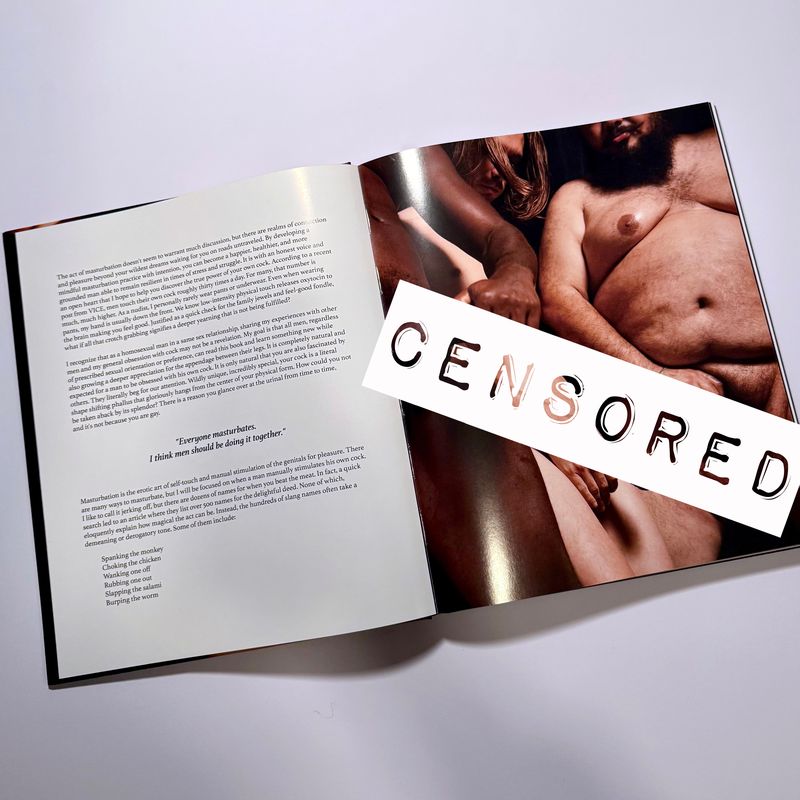
In his delicious new book HOMOSOCIAL: Bonded Through Cock, artist Jason Wimberly ushers readers into a world where male intimacy is neither hush-hush nor hailed from the shadows, but unapologetically celebrated and dripping with joy. With a frothy mix of warmth and whimsy, he reconfigures mutual pleasure as something much more radical than simple titillation. Through his work, Wimberly creates an avenue to connection and vulnerability, and it never looks so good. HOMOSOCIAL asks what could possibly happen if men were allowed to come together and enjoy their own bodies while also enjoying each other’s presence without the fear of judgment.
What HOMOSOCIAL offers us is a discussion that blurs the lines between eroticism and commentary. Drawing from years of nude wellness retreats, collaborative photo sessions, and personal loss, the book posits self-touch as self-knowledge. It can be playful at times, spiritual at others, and always so very human. In this interview with Wimberly, we dive into the intention behind the imagery and why the simple act of men embracing their shared anatomy might just be more revolutionary than it initially sounds.
HOMOSOCIAL is a word loaded with male beauty. Why did you choose this title, and what does it mean to you in the context of this book?
My new book, HOMOSOCIAL: Bonded Through Cock, is a love letter to hard cocks, male masturbation, and my steadfast belief that men should enjoy both things freely and openly together without shame. If more men were able to jerk off together as a social activity without it having an impact on their perceived sexual orientation, I think it would just about end world war. Of course, mutual masturbation is nothing new. In fact, men are inherently bonded through the shared knowledge of having a cock, and I want to empower more men to share that pleasure freely and socially.
Your work in this book centers on self-love in its most carnal form. What drew you to masturbation as a subject, and how does this book contribute to the conversation?
I have produced 25 nude wellness events for men that aim to empower my guests through a daily protocol of movement, mindfulness, and masturbation while naked in nature. The goal is to inspire them all to have as many first experiences daily as possible. Those firsts can inspire change and growth in themselves and their lives. Masturbation is simply one of the many ways we work to maximize our physical and emotional health by bringing awareness and attention to things that may otherwise seem mundane in the real world. But when you’re naked in the woods for a week, with five other men who are all there focused on feeling their best, masturbating in the woods together can be a spiritual experience. The sun on your balls, the birds in the sky, and a private eighteen-acre property to fully embrace your primal side.
You’ve said the book can’t be shown online but must be experienced in person. What about the experience changes when this work is encountered in the flesh rather than through a screen?
I don’t recall saying that, but that sounds like me. As an elder millennial approaching 45, I am foolishly hanging onto as much of my analog life as possible before the complete AI takeover. I used no AI in writing my book. I don’t even know what ChatGPT is. I love books. Reading is so important, and holding a book in your hand is just so different to me than reading a screen. Of course, the book is available for digital download as well, and formatted in a font and layout that is a little easier to read online. There’s just something so titillating about holding a big, hard book full of cocks in your hand, in my opinion.
Circus of Books is a legendary queer space with its own history of censorship and resistance. How does showing HOMOSOCIAL in this cock-clad cathedral influence the meaning of the project?
It was an absolute honor to launch the book at Circus of Books in every way. I am close friends with the owner and have been talking about this project for years. It almost didn’t happen so many times, so when I finally hung my artwork up on the walls for the opening reception, it was almost surreal. I just wrapped a month-long exhibition there that featured six-foot-tall images of men masturbating together. As a self-published artist and author, I was gobsmacked by the support and turnout for my events. During the opening events, I even developed a special way of signing books with my balls. I think I just invented ball stamps, and it’s been so much fun.
Many of the models appear repeatedly throughout the book. How did trust & vulnerability factor into your process when working with them?
I did an online casting for a diverse selection of men. Representation of all body types was a massive focus. It was important to show all ages, sizes, shapes, penis sizes, and colors of skin. I am so proud of the boys who came together for the shoot. I call them my boys, but they are really men, and very brave ones at that. The only requirement in the casting was that you were comfortable masturbating on camera with other men. Once I had a cast, I shared the first 10 pages of the book and the mood boards I had created. The day of the shoot, we spent about 8 hours together hanging out, becoming buddies, and playing with our boners all day. The images show the continuation of the day, and you can see them get closer, and the smiles get bigger. Each shot is just joyful, natural, and hot as hell. There was also something special that happened in the money shots that was so pure. I don’t want to give it all away, but the boys really trusted me and each other, and we all just had a ton of fun.
How do race, shape, age, and gender expression factor into your casting and visual language of the book?
I want my work to be accessible to all men. I have a wide variety of guys who come to my events, and I want to be sure to represent that. It’s important to me that everyone feels welcome. I was not looking for a body type or a look, but I was looking for attributes. I wanted real, natural, and proud men. Those qualities need no physical qualifiers, and that is sort of the beauty of getting guys naked together. It strips away everything we can hide behind and allows us to connect over the things that we have in common.
In this case, our cocks.
How do you navigate the line between erotic imagery and fine art? Do you even believe that line still matters?
There is a quote from Gloria Leonard in my book that says, “The difference between pornography and erotica is lighting.” I think all art is subjective, but HOMOSOCIAL isn’t about sex. There is no sex in any of the book, or at my events. The images are to show men who are proudly embodying their pleasure while in the company of each other. To me, it’s almost more like sex education.
The book focuses on male pleasure without an audience, without performance for another person. Did working on this project change how you think or feel about desire and intimacy?
Masturbation for an audience is great, but this isn’t about what goes on in front of a camera. The book is devoted to the idea that men masturbating together should be seen as a social experience. Like most social experiences, connection is easier to foster without staring at a screen. Watching porn with your buddies is a great way to kick off a circle jerk, but I encourage mindful habits when masturbating, and monitoring your porn usage is a great idea.
I wouldn’t say any of my own feelings changed during the project. It did allow me the opportunity to share my own experiences, and those of the 450 men who contributed to my research. Jerking off with my friends has been a constant in my life since childhood. In the data I collected, it was often a fond memory of that past that most wished they still had access to. The whole project happened so organically.
What conversations revolving around shame/stigma/conformity did you have to confront while making this work?
Well, it almost didn’t happen. Putting out a book with hard cocks of the cover can scare people. I was getting censored by printers, publishers, and anyone I spoke to didn’t want to touch the project. There is an amazing printer in Germany that does male erotic art, but they were more than I could afford this first round. This whole thing I did entirely on my own. Along the way, the more people tried to stop me, the more I knew I had to finish it and get it out there. It is not intended for everyone. I intentionally use the word cock hundreds of times. Knowing that, I am confident it will reach the right people and inspire some new conversations. That’s all I want.
This work all began because my best friend died in my arms. I believe his cancer was related to a deep secret he held for many years, and it literally ate him alive. I have been teaching people how to exercise my whole life as a trainer, but if I can also help a man release shame in his body and love all parts of himself even more fully? That is way more rewarding than building big biceps or a smaller waist.
You collaborated again with photographer Jordan Service aka @jxcollab on this project. What does your creative relationship allow you to explore that might be proven difficult to execute solo?
Jordan and I go back over 10 years. Working with a friend and collaborator for over a decade is such a special thing, and we both sort of began the journeys we are both currently on together. I was Jordan’s first published model for ADON magazine. I was still sort of new to L.A. and just about to open my first fitness studio. He was leaving a fashion job to focus on photography. We have worked together on so many projects over the years, and we always have a fun time doing so. This was a core memory, though, and it’s been even more fun to host book events together and feature his amazing photography as big as I can.
In a culture obsessed with productivity and optimization, masturbation is often framed as indulgent or a cheap dose of dopamine. Do you see HOMOSOCIAL as a bit of a quiet act of resistance?
100%. It’s unfortunate that so many negative voices exist regarding physical pleasure. I do think those attitudes are waning, though, and there is science to prove the value of frequent ejaculation on both your prostate health and your overall emotional and physical health. I think the real value lies in learning to take time, be present, and bring mindfulness into your masturbation practice. The optimization myths are all designed to sell you something. I’m selling a book, but to inspire the reader to what is natural and free already within them and around them. For those who don’t have regular access, I create safe spaces for men to explore physical intimacy and pleasure without the pressure of sex. Shooting loads in the woods is a necessary aspect of the human male experience as large mammals, and physical pleasure should be seen as a very productive use of time. Anyone who says otherwise probably needs an orgasm.
The work is unapologetically queer but not necessarily about sex between people. Who do you imagine this book speaking to?
I recently got a review from a father in San Diego who is married to a woman, with kids, but newly free to explore his attraction to men. He said, “I cannot thank you enough. This is a book for every man on the planet. I wish that I were brave enough or had enough wisdom to know how to give it to my own adult son. Perhaps someday.”
I think there are a lot of men like him who will find themselves in the stories. I also think there are many who will learn a lot about themselves along the way, and hopefully feel a kinship to the subject. I would have bought this book as a young man and loved it. My own dad is a part of a series of cock portraits I did for the book, entitled “The Cocks of My Life.” He is very proud, and he loved the book, especially the chapter all about him. It makes a great gift too, and says a lot, without you having to say a word.
After HOMOSOCIAL, where do you feel your work is heading next? Chelsea? SoHo? Dish…
I am doing a ton of author events now and just wrapped a weekend of fun stuff in San Diego, which included a naked shopping night at Humanity in Hillcrest. San Francisco and NYC are next on my list for ball stamping book events, and exciting to be putting that all together. I am working on a new workshop series for The Pleasure Chest in Los Angeles to teach about mindful male masturbation in a live format. In the meantime, I am teaching online cock-centric movement classes where we stretch our balls and focus on our breath. Really fun stuff.
It’s also my upcoming retreat season at the cabin, so busy going through applications and already working on a second book, which is more instructional and will include video components as well. This book and the responses I’ve received have really motivated me to continue the conversation and dream up exciting ways to engage my community and continue to offer them fun ways to feel their best while connecting to nature and their natural urges. Check out NUWORLD.MEN for all the stuff I’m up to.

The 2026 Los Angeles Blade Best of LGBTQ LA Awards are here! You submitted your nominations—now it’s time to vote for the finalists. Voting is open through March 6, 2026.
Among some of your favorite categories are Best Drag Performer, Local Influencer of the Year, Best Happy Hour, Go-Go of the Year, Activist of the Year, Public Official of the Year, Best Non-Profit, Best Bartender, Best DJ, Best Local Podcast, and so many more!
Winners will be revealed at the Best of LGBTQ LA celebration on Thursday, March 26 at The Abbey. Stay tuned for more party details coming soon!
Vote using the form below or by clicking HERE.
Here are this year’s nominees!
Best Drag Performer
- Cake Moss
- Charles Galin King
- Kyra Jete
- Laylah Amor
- Misty Violet
Best Drag Show
- Bring It To Brunch at Mattie’s
- Brunch Service at The Abbey
- Hamburger Marys West Hollywood
- Las Reinas at Mickys
- Rocc-ettes at Mattie’s
Local Influencer of the Year
- Charles Hernandez (CnoteLA)
- Curly Velasquez
- Justin Martindale
- Lucas Dell
- Rose Montoya
- Victoria Pousada Kreindler
Best LGBTQ Bar
- Gym Bar
- Kiso Los Angeles
- Mattie’s Weho
- Or Bar
- The Abbey
Best Happy Hour
- 33 Taps
- Fiesta Cantina
- Hi-Tops
- Mickys
- Motherlode
- The Abbey
Go-Go of the Year
- Daniel Mooney
- Gabriel Gonzalez
- Jay Nova
- Prince Joshua
- Steven Dehler
- Victoria Shaw
Best Restaurant
- Bottega Louie
- Hamburger Mary’s
- La Boheme
- Pura Vita
- WeHo Bistro
Best Radio or TV Station
- CHANNEL Q
- KTLA
- LatiNation
- Out TV
- REVRY
Best Cannabis Retailer/Lounge
- Artist Tree Lounge
- Elevate
- Green Qween
- Med Men
- The Woods WeHo
Best LGBTQ Owned Business
- Fan Girl Cafe
- Green Qween
- JJLA
- MISTR
- Wildfang
Best LGBTQ Social Group
- Dark Circle Film Society
- Gay Men’s Chorus of Los Angeles
- NLGJA Los Angeles
- Outloud Sports
- Unique Woman’s Coalition
- WeHo Dodgeball
Best House of Worship
- Congregation Kol Ami
- Founders Metropolitan Community Church Los Angeles
- Hollywood Boulevard Episcopal
- Hollywood United Methodist
- InVision Church Los Angeles
Activist of the Year
- Cory Allen
- Joshua Marin-Mora
- Liliana Perez
- Maebe A. Girl
- Rose Montoya
Public Official of the Year
- CA State Treasurer Fiona Ma
- Chelsea Byers
- John Erickson
- Lindsey Horvath
- Maebe A. Girl
Best Local Pro Sports Team
- Angel City FC
- LA Chargers
- LA Dodgers
- LA Lakers
- LA Rams
- LA Sparks
- Los Angeles FC
Local Ally of the Year
- Abbe Land
- Jessica Steinman
- Kevin De Nicolo
- Lindsey Horvath
- Senator Lena Gonzalez
Best Doctor/Medical Provider
- AIDS Healthcare Foundation
- Better U
- Dr. Eric Chaghouri
- LA LGBT Center
- St. John’s Wellness
- UCLA CARE Center
Most LGBTQ-Friendly Workplace
- AIDS Healthcare Foundation
- City of West Hollywood
- JJLA
- Los Angeles LGBT Center
- Revry
Non-Profit of the Year
- AJ Socal
- Equality California
- Los Angeles LGBT Center
- OutAthletes
- Project Angel Food
- Trans Lifeline
Best Local Actor
- Annie Reznik
- Jason Caceres
- Michael Scott Montgomery
- Nhut Le
- Shaan Dasani
- Trevor Dow
Best Local Theatre
- Celebration Theatre
- Center Theatre Group
- Geffen Playhouse
- International City Theatre
- LA Opera
- Pasadena Playhouse
Local Musical Artist of the Year
- Prince Joshua
- Robert Rene
- Ross Alan
- San Cha
- Tom Goss
Best LGBTQ Event
- Dinah Shore
- GLAAD Awards
- LA Opera Pride Night
- MISTR’s National PrEP Day
- Outloud Music Festival at Weho Pride
- Pride Night by Hyperion LA
Best Regional Pride
- DTLA Proud
- Hermosa Beach
- Long Beach Pride
- Palm Springs Pride
- WeHo Pride
Best Promoter of the Year
- Andres Rigal
- Ash Rodriguez
- Beau Byron
- Joshua Flores
- Paul Nicholls
LGBTQ Professional of the Year
- Cory Allen
- Erik Braverman
- Kathleen Rawson
- Liliana Perez
- Michael Ferrera
- Tristan Schukraft
Best Bartender
- Alex Satoshi DiDio
- Danny Hernandez
- Manny De Cielo
- Matt Stratman
- Michael Susi
- Michael Vega
Best DJ
- Boy Apocalypse
- DJ Les Ortiz
- DJ SRO
- Lord Izac
- Simon Harrison
Best Local LGBTQ Podcast
- BabyGay
- No Matter What Club
- No Matter What Recovery
- On The Rocks
- Sloppy Seconds Podcast
- Very Delta
Best Salon/Spa
- Bautis LA
- Folklore Salon & Barber
- Project Q
- Shorty’s Barber Shop
- The Massage Company WEHO
Best Music Venue
- The Disney Concert Hall
- The Hollywood Bowl
- The Roxy Theatre
- The Troubadour
- The Wiltern
Best Fitness/Workout Spot
- Barry’s WEHO
- Equinox on Sunset
- Gold’s Gym
- John Reed Fitness
- LA Fitness, Hollywood
Best Hotel
- Andaz
- Edition Hotel
- Hotel Ziggy
- Kimpton La Peer Hotel
- SoHo House
a&e features
Revry Co-Founder Damian Pelliccione on why we need ‘King of Drag’
The co-creator of this hit series speaks about its impact — and what fans can expect from season two!
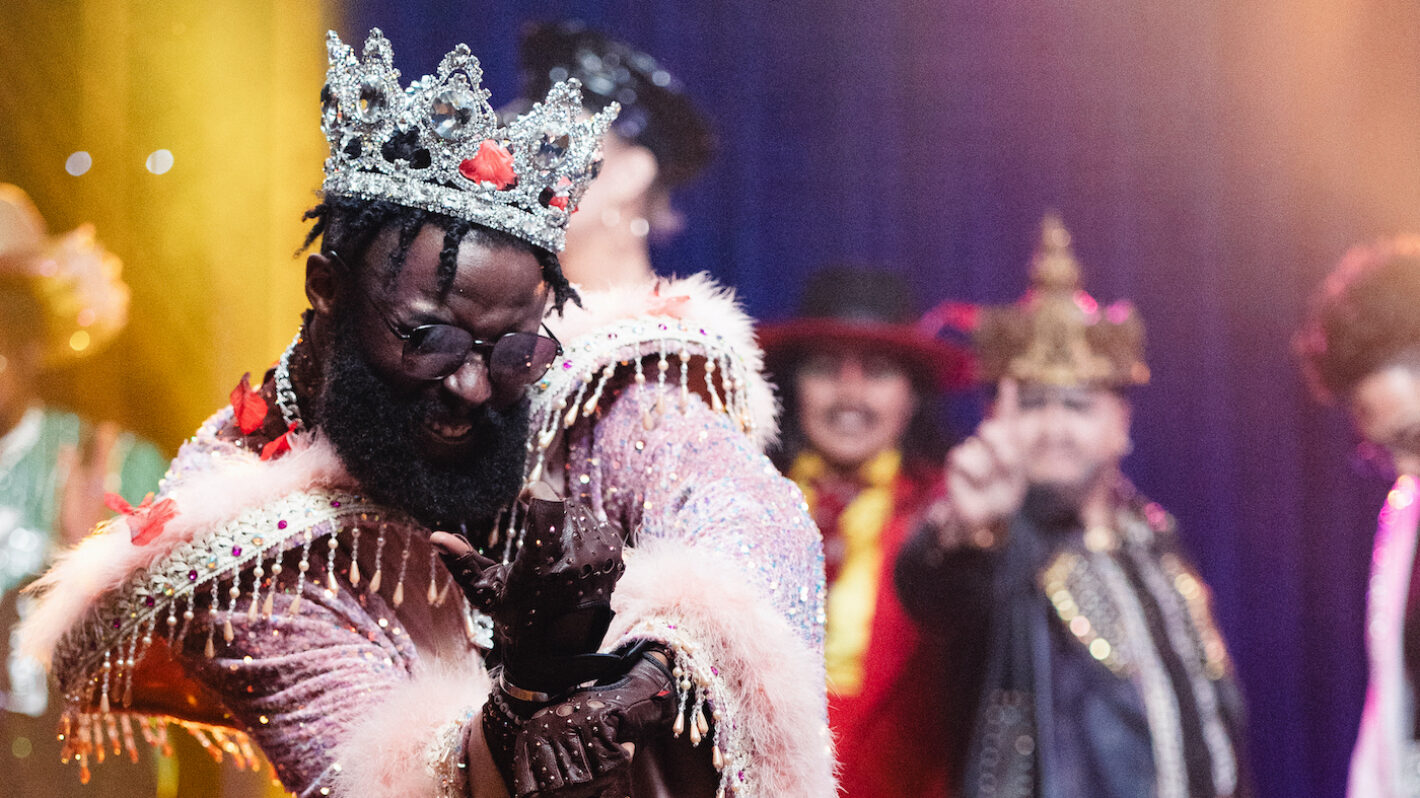
King of Drag, the only drag king competition show on TV, activated the LGBTQ+ community with a big bang, and it’s clear why. Despite an increase in drag-centric media, this was the first series deliberately focusing on spotlighting these kinds of artists. Even a year after its premiere, fans are still raving about the show, with season one delivering a level of kingly charisma nobody could’ve expected — making it all the more exciting when it was announced that King of Drag was officially casting for season two!
As co-founder of Revry — the LGBTQ+ streaming service that hosts King of Drag — and co-creator of this hit competition show, Damian Pelliccione understands the power that media has on its audiences. It’s why they work every day to create LGBTQ+ content anyone can enjoy, and it’s why they fought to get King of Drag televised and ensure it was a space where kings could finally be celebrated. Sitting down with the Los Angeles Blade to discuss the series’ season two announcement and what it’s meant to be a part of such a trailblazing franchise, they started this interview by making one thing very clear: “We’ve always been fully invested in casting and promoting Drag Kings on our shows.”
The co-founder spoke about how representing marginalized identities has always been an integral part of Revry’s mission. “We’ve always been very inclusive in our casting to make sure that we [work with] kings just as much as we work with Queens.” It’s a sentiment that, unfortunately, most other drag-centric series don’t share. RuPaul’s Drag Race, especially, has been criticized for refusing to cast anyone who wouldn’t fall under the umbrella of ‘queen.’ And while subversive programs like The Boulet Brothers’ Dragula do allow drag kings to compete, the show typically only allows one or two each season, meaning that there’s only a short time to discuss the boundless intricacies that exist in this art form.
This means that while drag king representation exists, it’s only been a trickle amidst the wave of awareness that drag queens have received in recent years. This phenomenon never sat right with Damian and their Revry team — so they decided to do something about it.
After years of searching for sponsors to get the show made, King of Drag officially premiered in June 2025 to widespread acclaim. Fans were instantly taken by the bombastic competition; while its format is similar to many other series’, the hilarious judging panel (led by the amazing Murray Hill) and jaw-dropping challenges were endlessly zany while also perfect avenues for contestants to show their immense talent. Almost growing emotional, Pelliccione recounted the widespread support the series received after its first few episodes, saying, “[Viewers] come forward to say, ‘Thank you for creating something that is not just about fighting or cattiness.’ It’s an elimination show, but you could see the authenticity in the heart of these kings…you could see their struggles, and [what it took] to create their art.” They fondly described the love this project hasn’t stopped receiving since it first came out — but they also detailed the rampant hatred that has come along with it.
It shouldn’t be forgotten that King of Drag was produced and aired early into the current presidential term, with the early months of 2025 seeing a level of anti-trans and homophobic rhetoric filling the U.S. in a way many viewers had never seen before. Damian recalled how, in the face of this hatred, their team understood that audiences needed King of Drag now more than ever. “It’s somewhat an act of defiance having a show like King of Drag — and having a network like Revry [altogether],” they said, filled with pride. “You can’t stop progress, and we’ve already come so far as a society (at least, I hope we have), so going back does not seem realistic. And I think that we’re seeing resistance now to our sitting government, and hopefully this carries into our midterm elections!”
A resistance that was buoyed by King of Drag, with each episode introducing viewers to nonstop drag excellence and thoughtful conversations on what it means to be a queer artist today. This, combined with the wild challenges — ranging from queer quiz shows to boy band performances — turned the initial installment into a raucously prideful experience for everyone watching. For almost a year now, fans have applauded all that the show was able to accomplish, and Damian assures these viewers that there’s even more coming in season two.
“Some of the biggest things we’re really excited about in this season are [not only] a few returning challenges, but we are [also] really bringing on a whole new level of celebrity guest judges,” raved the excited co-creator. “We’re really tailoring our [judges] so that they could be a kind of mentor or advisor. [Helping] build something that the king can use for their future career!” It was this point especially that Damian emphasized as the heart of King of Drag, recognizing that while having your time in the spotlight is amazing, bills still need to be paid when the cameras are shut off. “I want kings who come off our show booked and blessed. What else can we do as a network just to help support those careers?’”
With the interview coming to an end, Damian was asked the question that thousands of drag kings are currently thinking: how can I get cast? Typically, producers answer this style of inquiry with vague advice about uniqueness and skill — but not Damian. Still wanting only the best for their contestants, they plainly stated, “My one word of advice: this is not a side hustle.”
“The purpose of being on the show is to create a career for you…We want people who are really serious about the art form and have their own specific take on what it is to be a drag king. We want your authenticity, and we want to see that this is a career path for you. We [want to know] that this is something that you’re ready to take to the next level.”
An ambitious yet thoroughly uplifting goal for the many kings currently getting their applications together. And with that advice, the creator made one thing very clear: King of Drag exists not only to spotlight drag kings, but to bring them and their art form to the forefront of queer entertainment. It’s a revolutionary undertaking that viewers can watch unfold in each scene, and if a drag king feels ready to join in and become a part of this mission, Damian invites them to gather up their best drag and apply for season two today.
King of Drag season 1 is streaming on Revry
Books
New book profiles LGBTQ+ Ukrainians, documents war experiences
Tuesday marks four years since Russia attacked Ukraine

Journalist J. Lester Feder’s new book profiles LGBTQ+ Ukrainians and their experiences during Russia’s war against their country.
Feder for “The Queer Face of War: Portraits and Stories from Ukraine” interviewed and photographed LGBTQ+ Ukrainians in Kyiv, the country’s capital, and in other cities. They include Olena Hloba, the co-founder of Tergo, a support group for parents and friends of LGBTQ+ Ukrainians, who fled her home in the Kyiv suburb of Bucha shortly after Russia launched its war on Feb. 24, 2022.
Russian soldiers killed civilians as they withdrew from Bucha. Videos and photographs that emerged from the Kyiv suburb showed dead bodies with their hands tied behind their back and other signs of torture.

Olena Shevchenko, chair of Insight, a Ukrainian LGBTQ+ rights group, wrote the book’s forward.

The book also profiles Viktor Pylypenko, a gay man who the Ukrainian military assigned to the 72nd Mechanized Black Cossack Brigade after the war began. Feder writes Pylypenko’s unit “was deployed to some of the fiercest and most important battles of the war.”
“The brigade was pivotal to beating Russian forces back from Kyiv in their initial attempt to take the capital, helping them liberate territory near Kharkiv and defending the front lines in Donbas,” wrote Feder.
Pylypenko spent two years fighting “on Ukraine’s most dangerous battlefields, serving primarily as a medic.”
“At times he felt he was living in a horror movie, watching tank shells tear his fellow soldiers apart before his eyes,” wrote Feder. “He held many men as they took their final breaths. Of the roughly one hundred who entered the unit with him, only six remained when he was discharged in 2024. He didn’t leave by choice: he went home to take care of his father, who had suffered a stroke.”
Feder notes one of Pylypenko’s former commanders attacked him online when he came out. Pylypenko said another commander defended him.
Feder also profiled Diana and Oleksii Polukhin, two residents of Kherson, a port city in southern Ukraine that is near the mouth of the Dnieper River.
Ukrainian forces regained control of Kherson in November 2022, nine months after Russia occupied it.
Diana, a cigarette vender, and Polukhin told Feder that Russian forces demanded they disclose the names of other LGBTQ+ Ukrainians in Kherson. Russian forces also tortured Diana and Polukhin while in their custody.
Polukhim is the first LGBTQ+ victim of Russian persecution to report their case to Ukrainian prosecutors.

Feder, who is of Ukrainian descent, first visited Ukraine in 2013 when he wrote for BuzzFeed.
He was Outright International’s Senior Fellow for Emergency Research from 2021-2023. Feder last traveled to Ukraine in December 2024.
Feder spoke about his book at Politics and Prose at the Wharf in Southwest D.C. on Feb. 6. The Los Angeles Blade spoke with Feder on Feb. 20.
Feder told the Blade he began to work on the book when he was at Outright International and working with humanitarian groups on how to better serve LGBTQ+ Ukrainians. Feder said military service requirements, a lack of access to hormone therapy and documents that accurately reflect a person’s gender identity and LGBTQ+-friendly shelters are among the myriad challenges that LGBTQ+ Ukrainians have faced since the war began.
“All of these were components of a queer experience of war that was not well documented, and we had never seen in one place, especially with photos,” he told the Blade. “I felt really called to do that, not only because of what was happening in Ukraine, but also as a way to bring to the surface issues that we’d had seen in Iraq and Syria and Afghanistan.”

Feder also spoke with the Blade about the war’s geopolitical implications.
Russian President Vladimir Putin in 2013 signed a law that bans the “promotion of homosexuality” to minors.
The 2014 Winter Olympics took place in Sochi, a Russian resort city on the Black Sea. Russia annexed Crimea from Ukraine a few weeks after the games ended.
Russia’s anti-LGBTQ+ crackdown has continued over the last decade.
The Russian Supreme Court in 2023 ruled the “international LGBT movement” is an extremist organization and banned it. The Russian Justice Ministry last month designated ILGA World, a global LGBTQ+ and intersex rights group, as an “undesirable” organization.
Ukraine, meanwhile, has sought to align itself with Europe.
Ukrainian President Volodymyr Zelenskyy after a 2021 meeting with then-President Joe Biden at the White House said his country would continue to fight discrimination based on sexual orientation and gender identity. (Zelenskyy’s relationship with the U.S. has grown more tense since the Trump-Vance administration took office.) Zelenskyy in 2022 publicly backed civil partnerships for same-sex couples.
Then-Ukrainian Ambassador to the U.S. Oksana Markarova in 2023 applauded Kyiv Pride and other LGBTQ+ and intersex rights groups in her country when she spoke at a photo exhibit at Ukraine House in D.C. that highlighted LGBTQ+ and intersex soldiers. Then-Kyiv Pride Executive Director Lenny Emson, who Feder profiles in his book, was among those who attended the event.
“Thank you for everything you do in Kyiv, and thank you for everything that you do in order to fight the discrimination that still is somewhere in Ukraine,” said Markarova. “Not everything is perfect yet, but you know, I think we are moving in the right direction. And we together will not only fight the external enemy, but also will see equality.”
Feder in response to the Blade’s question about why he decided to write his book said he “didn’t feel” the “significance of Russia’s war against Ukraine” for LGBTQ+ people around the world “was fully understood.”
“This was an opportunity to tell that big story,” he said.
“The crackdown on LGBT rights inside Russia was essentially a laboratory for a strategy of attacking democratic values by attacking queer rights and it was one as Ukraine was getting closet to Europe back in 2013, 2014,” he added. “It was a strategy they were using as part of their foreign policy, and it was one they were using not only in Ukraine over the past decade, but around the world.”
Feder said Republicans are using “that same strategy to attack queer people, to attack democracy itself.”
“I felt like it was important that Americans understand that history,” he said.
-

 a&e features2 days ago
a&e features2 days agoAmy Madigan finds herself on the cusp of Oscar glory. Can she overcome the historic bias against horror performances?
-

 a&e features5 days ago
a&e features5 days agoTaylor Tookes wants you to be your own beauty standard
-

 Television4 days ago
Television4 days agoSexy financial drama ‘Industry’ is feeding the queer community
-

 Commentary2 days ago
Commentary2 days agoLA28: Where is your moral compass?
-

 Books3 days ago
Books3 days agoLove or fear flying you’ll devour ‘Why Fly’
-

 California2 days ago
California2 days agoEquality California has sponsored 12 bills to advance LGBTQ+ rights in the state
-
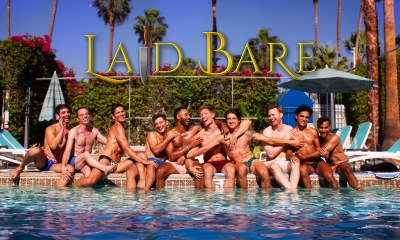
 Television10 hours ago
Television10 hours ago‘Laid Bare’ isn’t your typical sexy slasher
